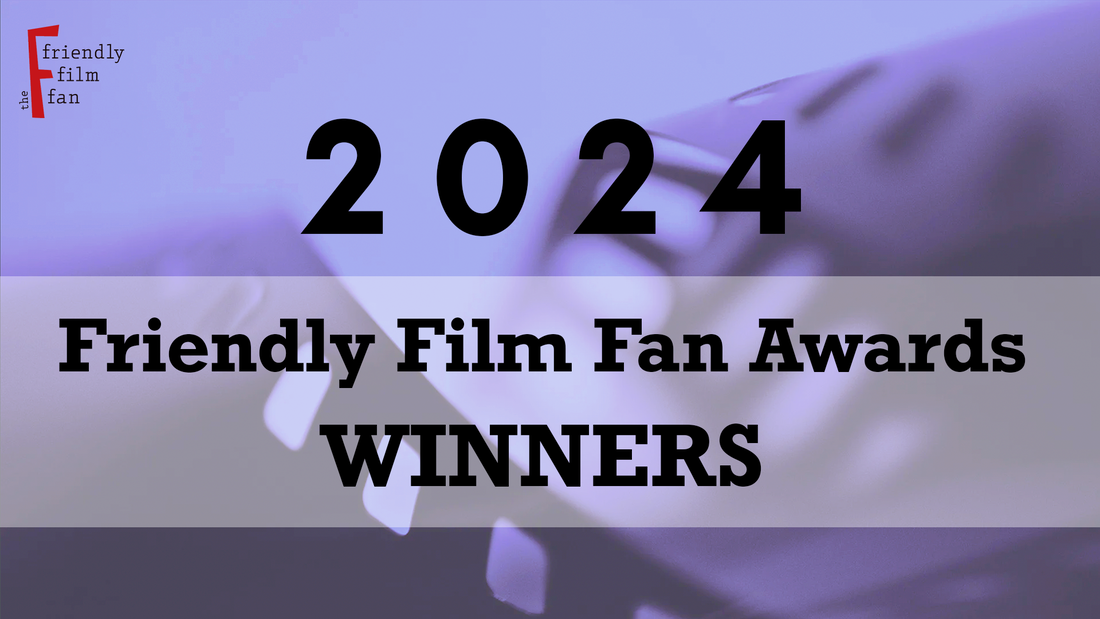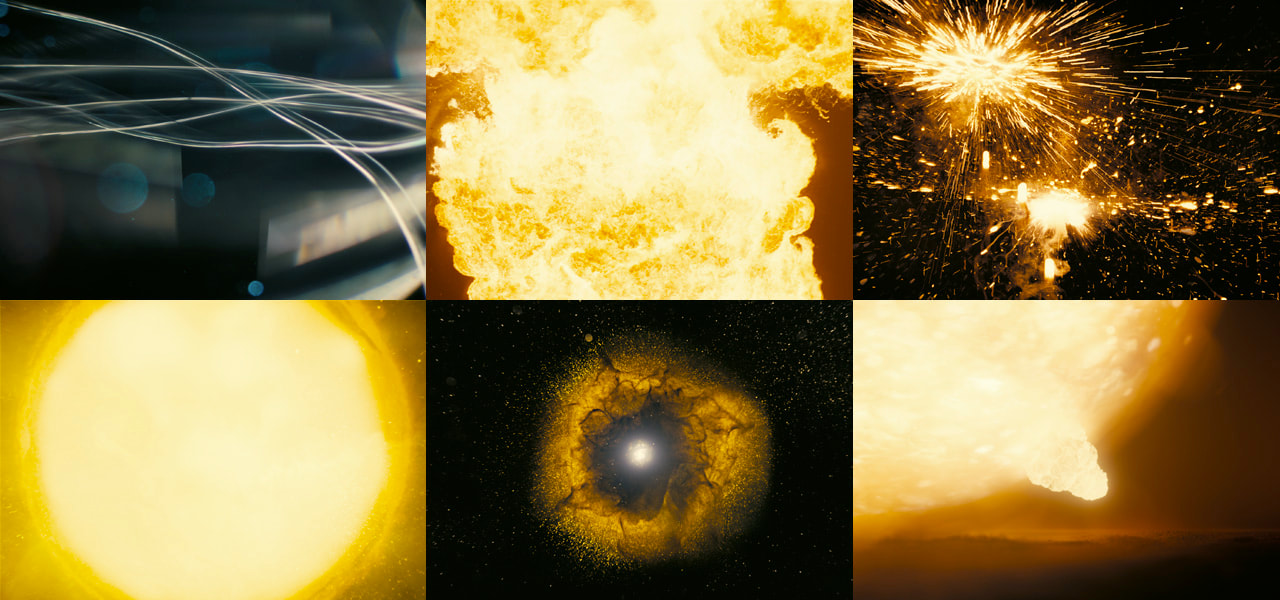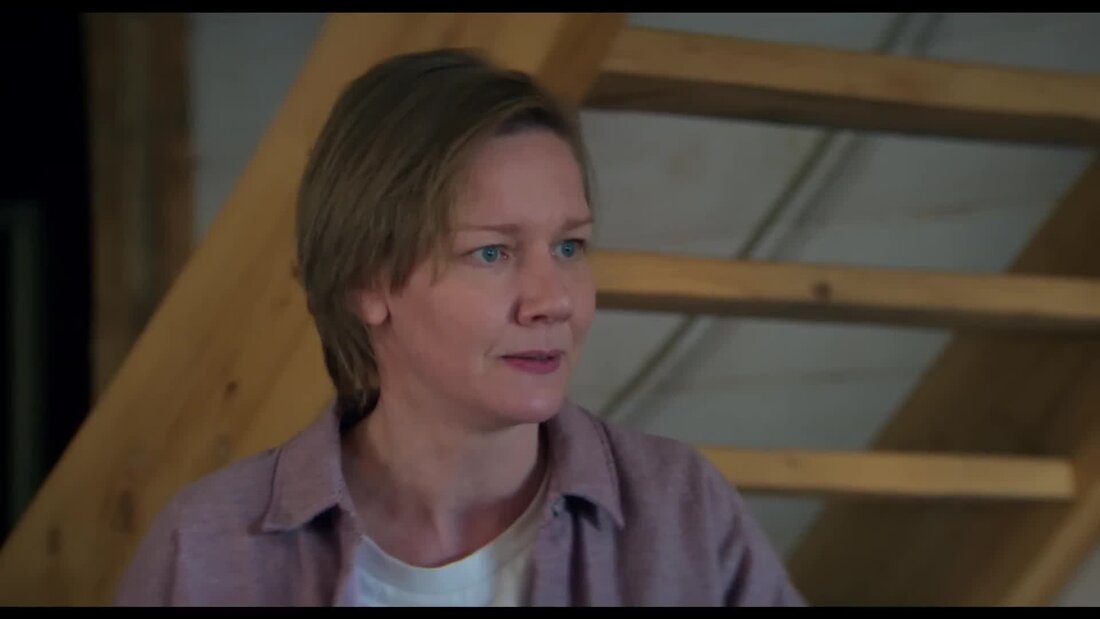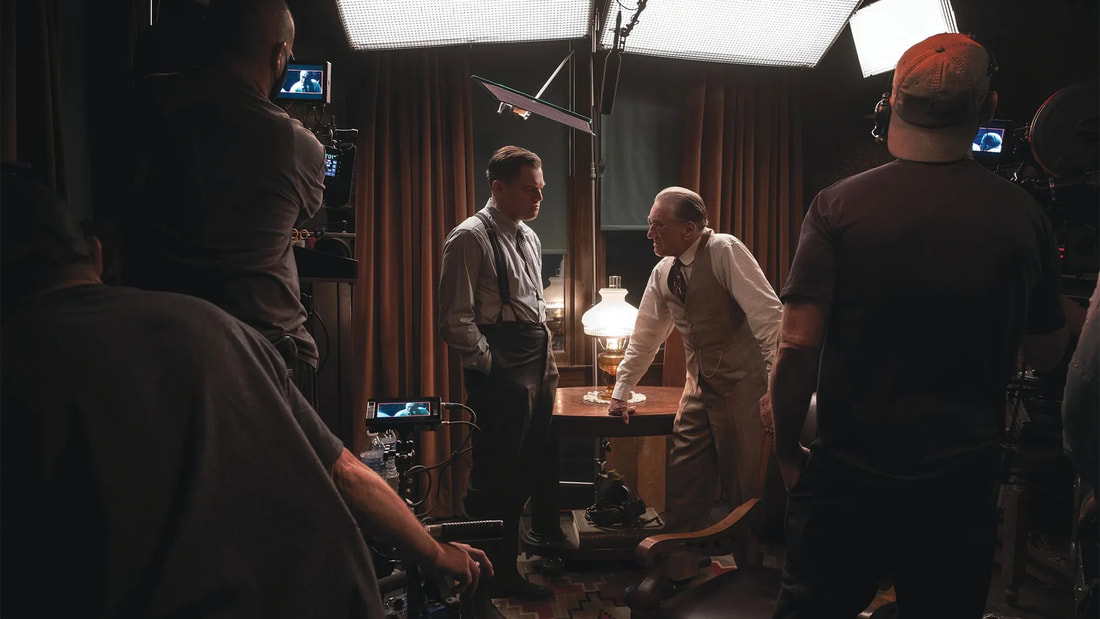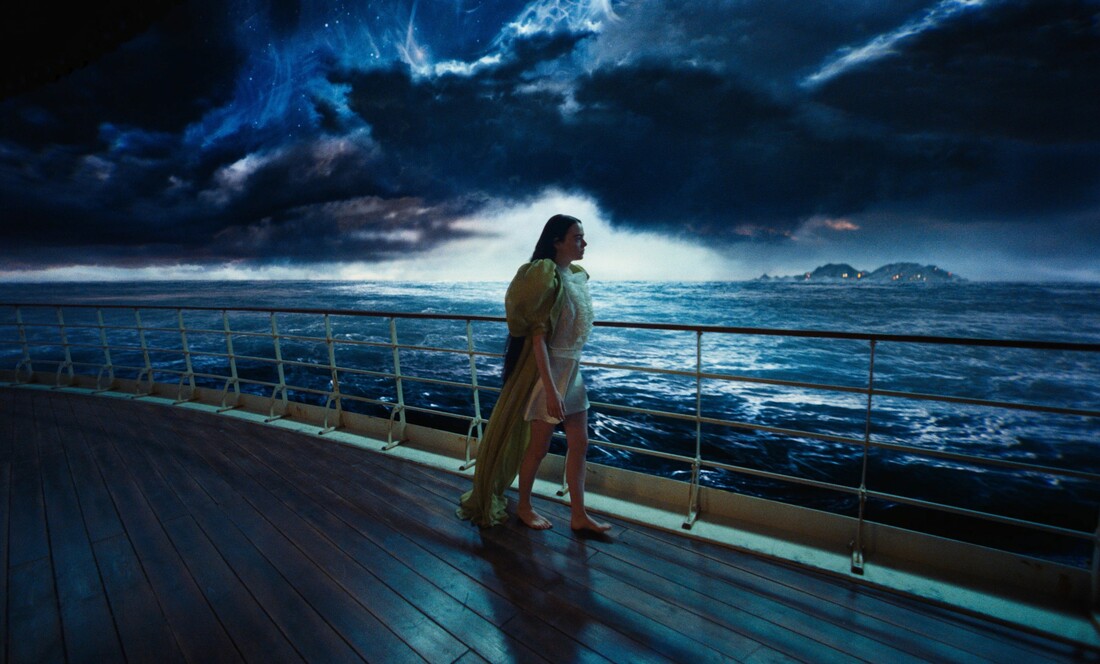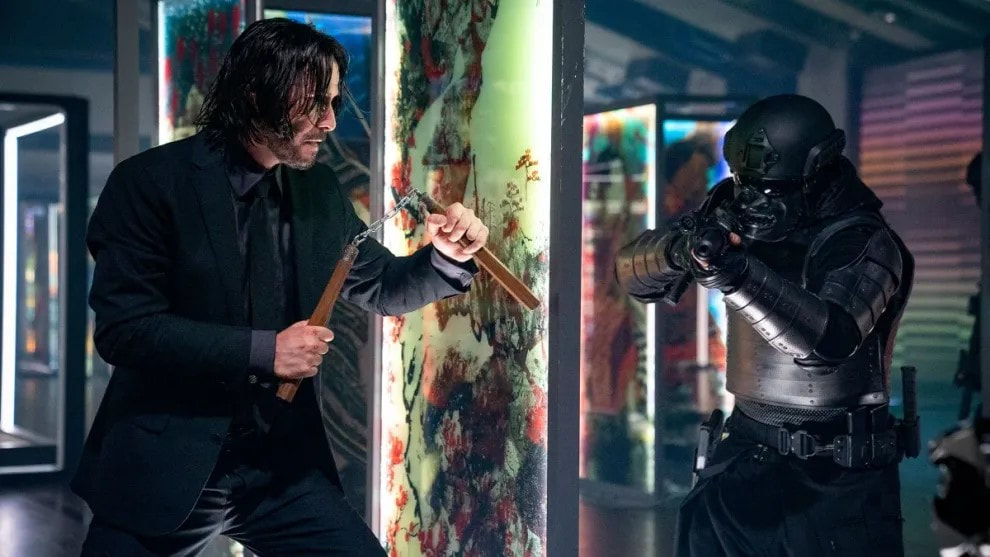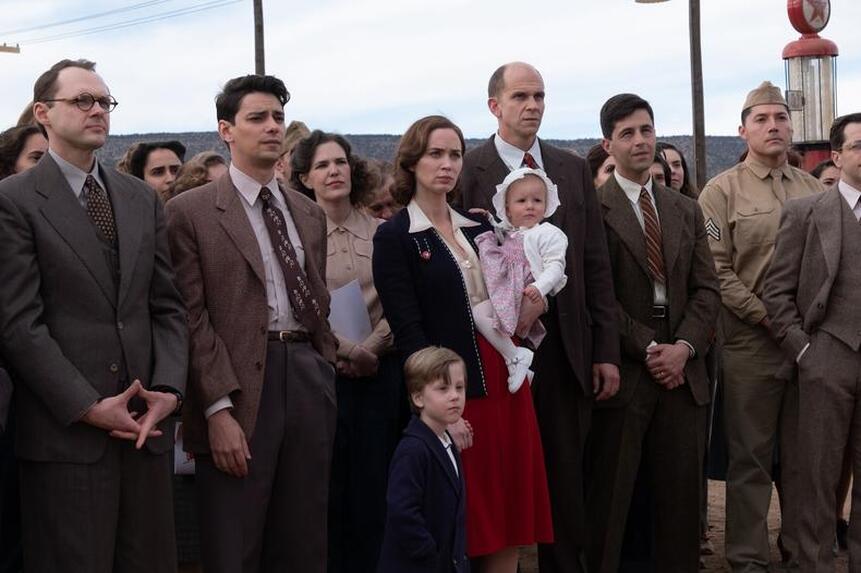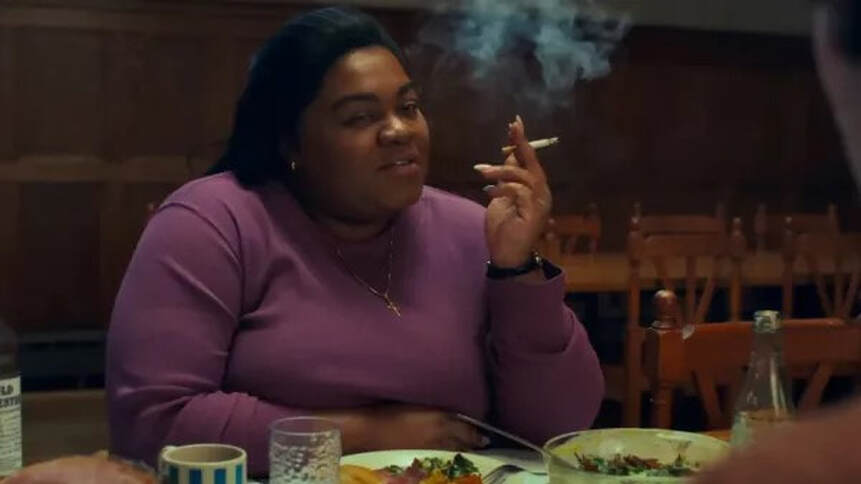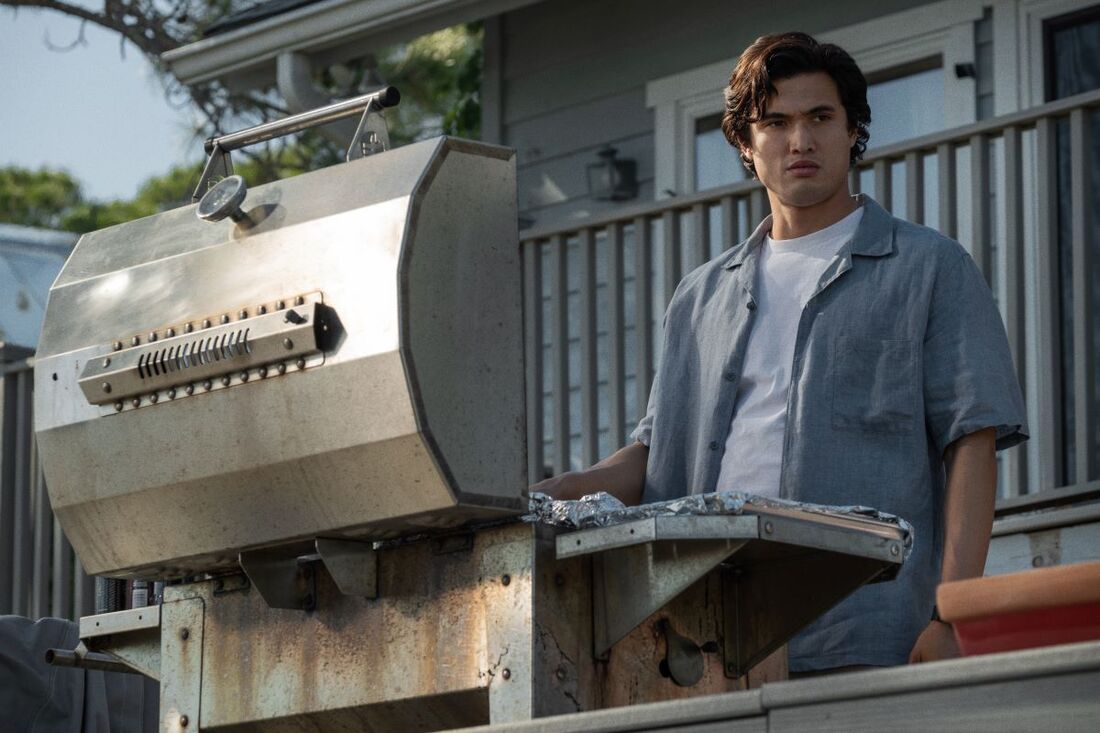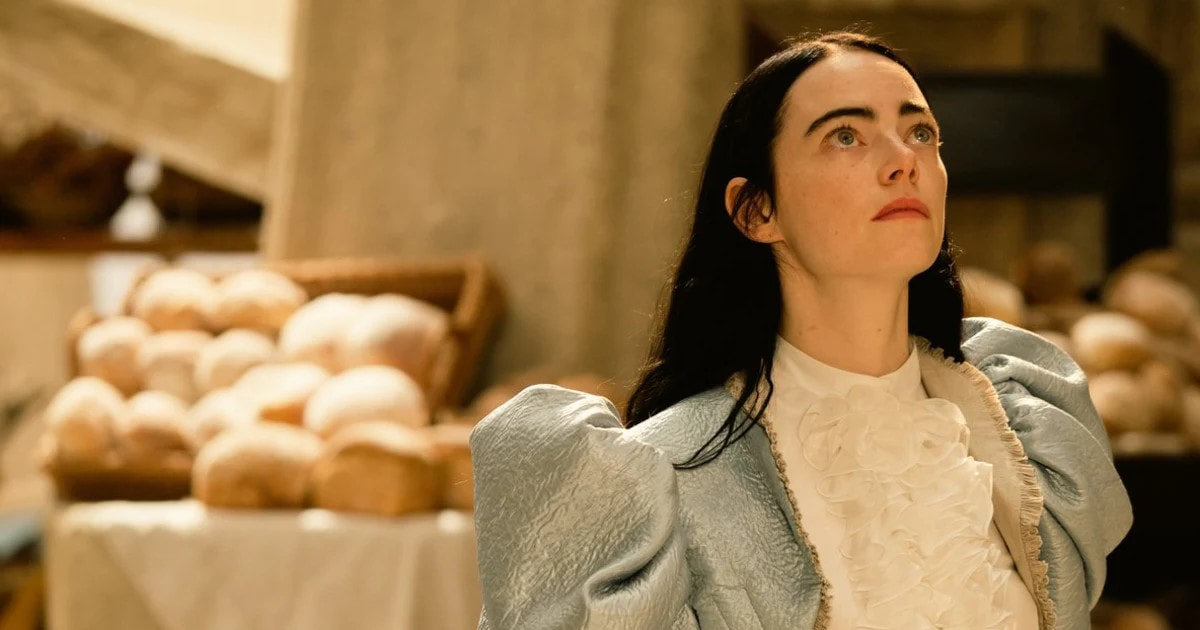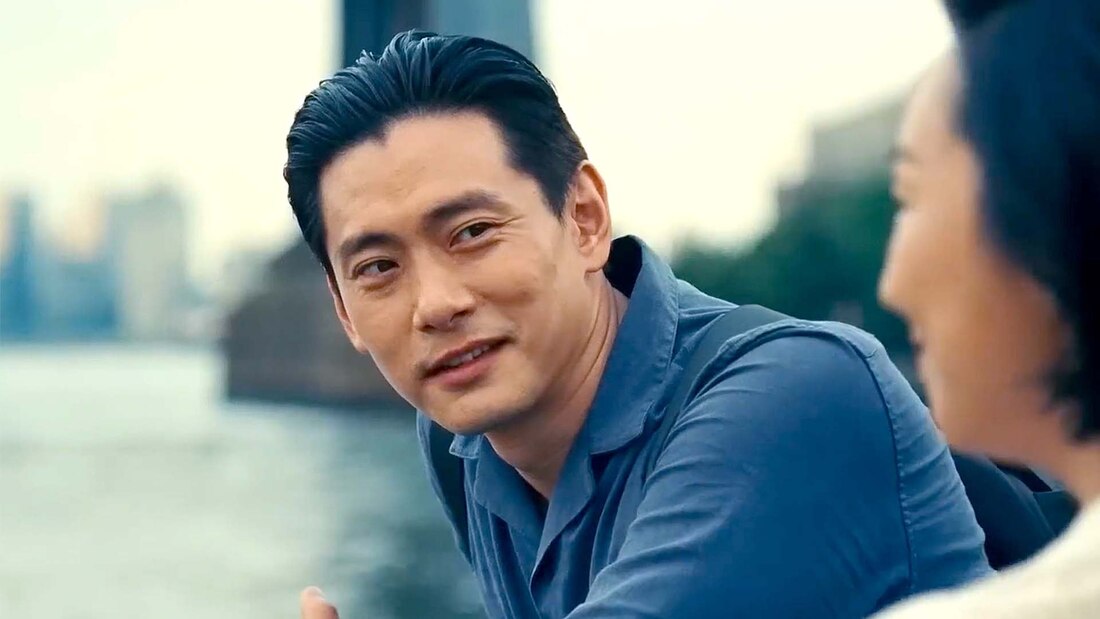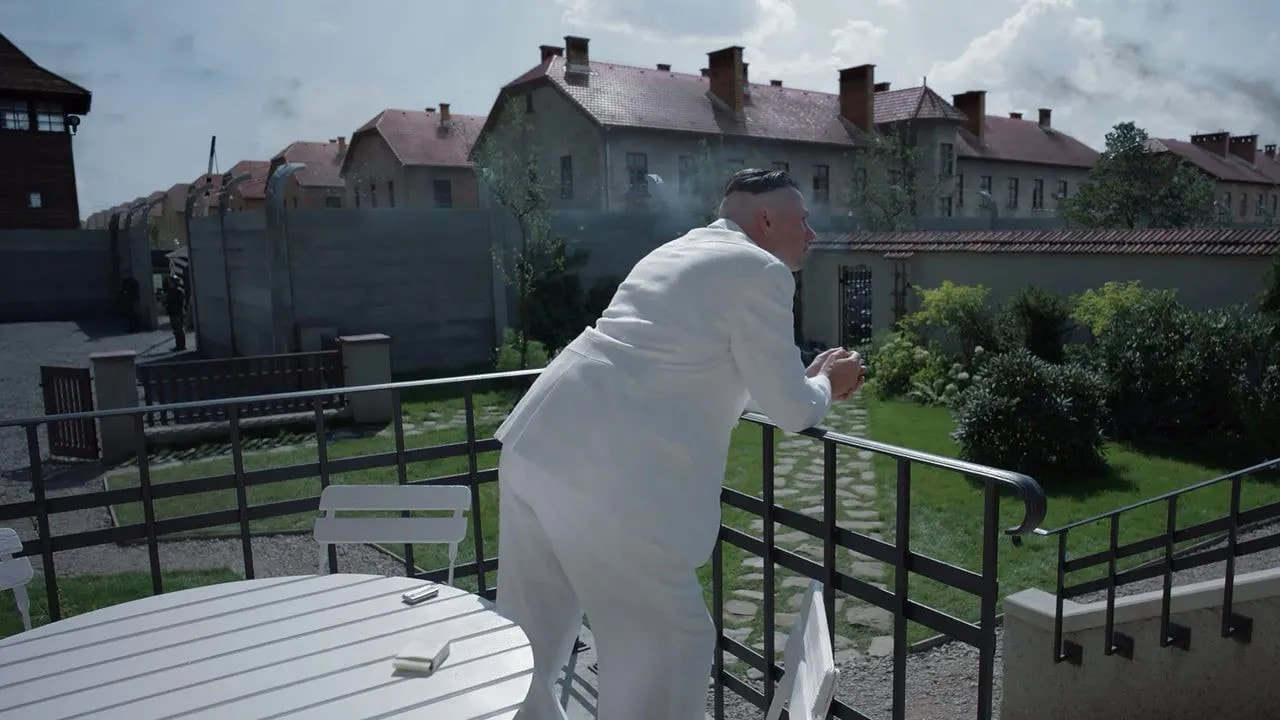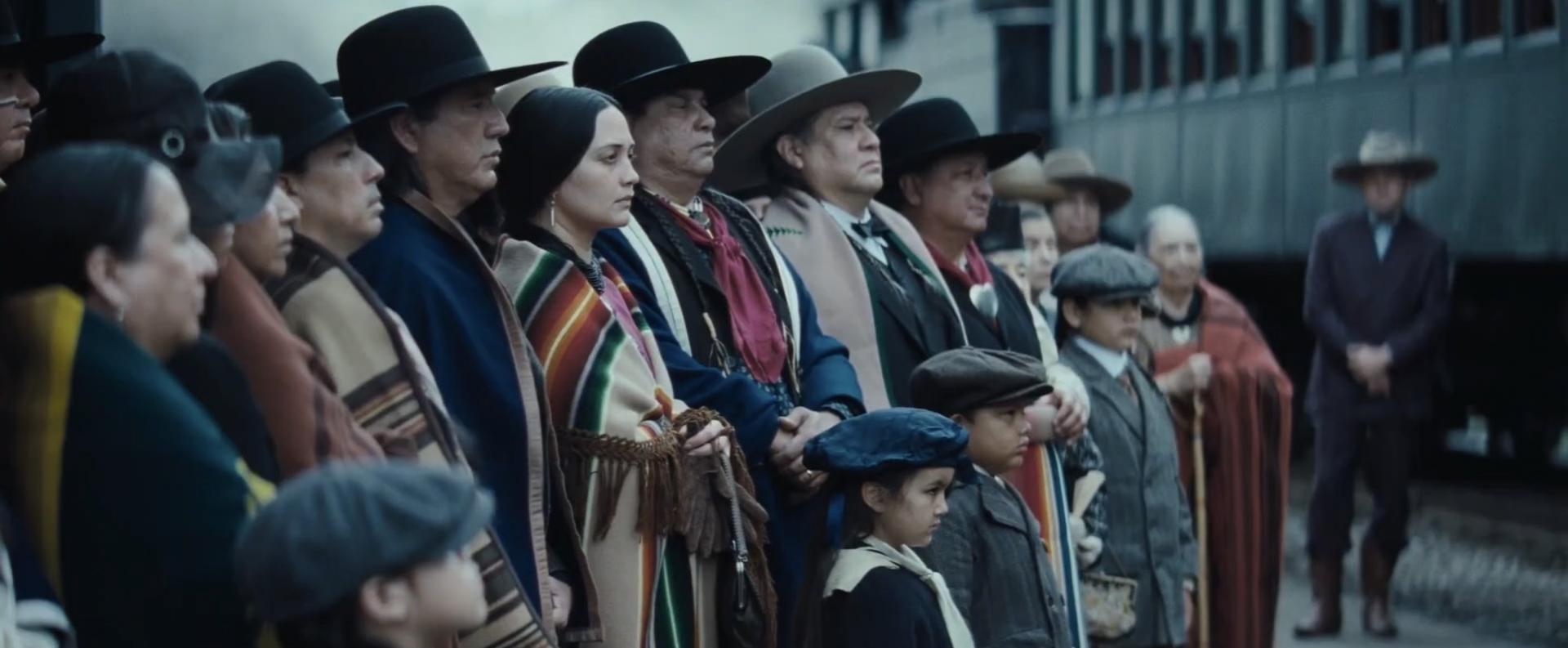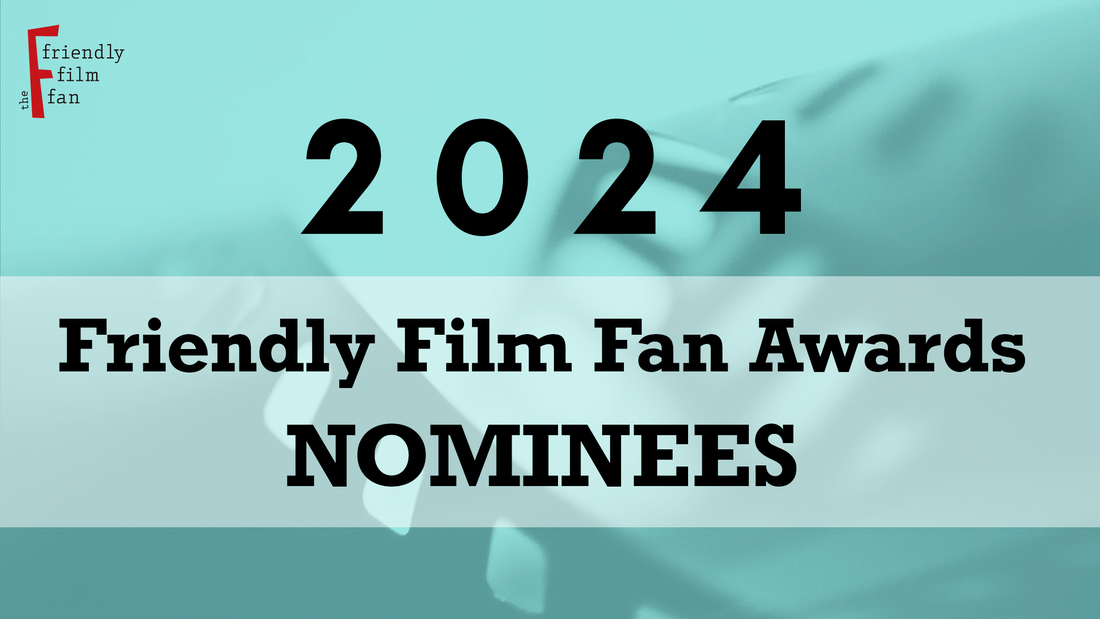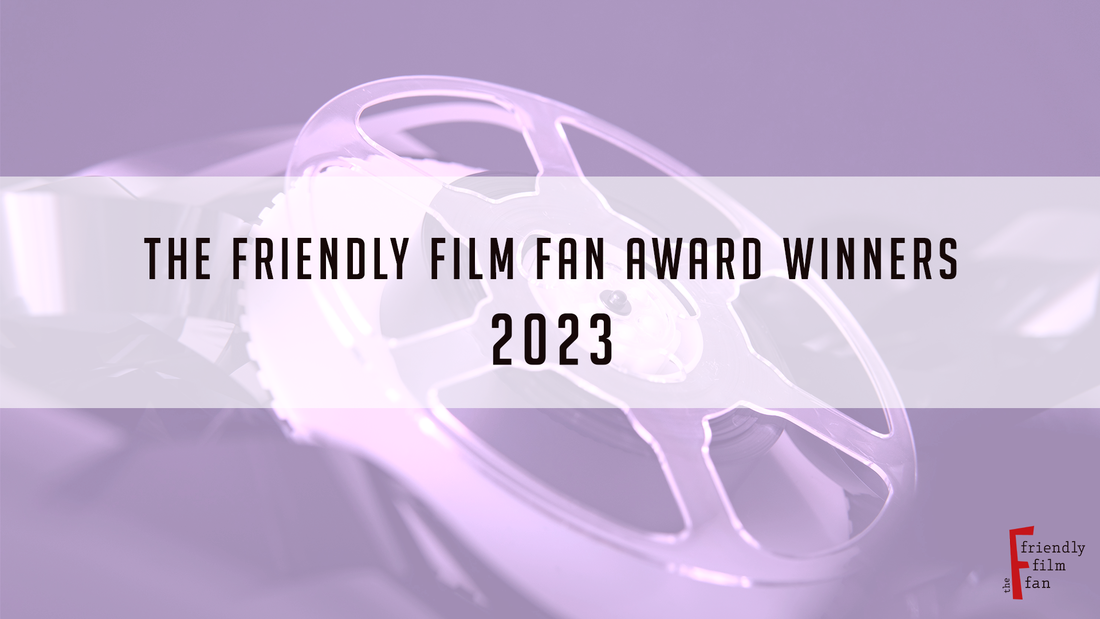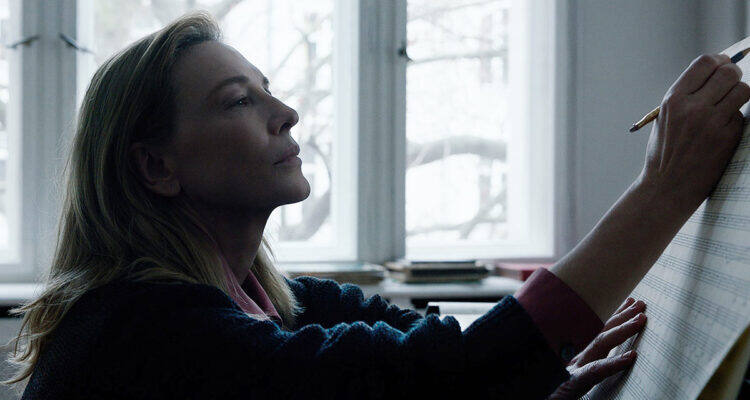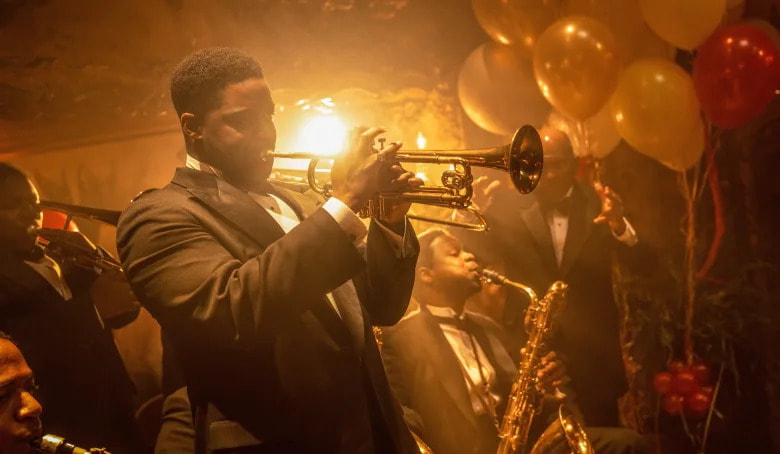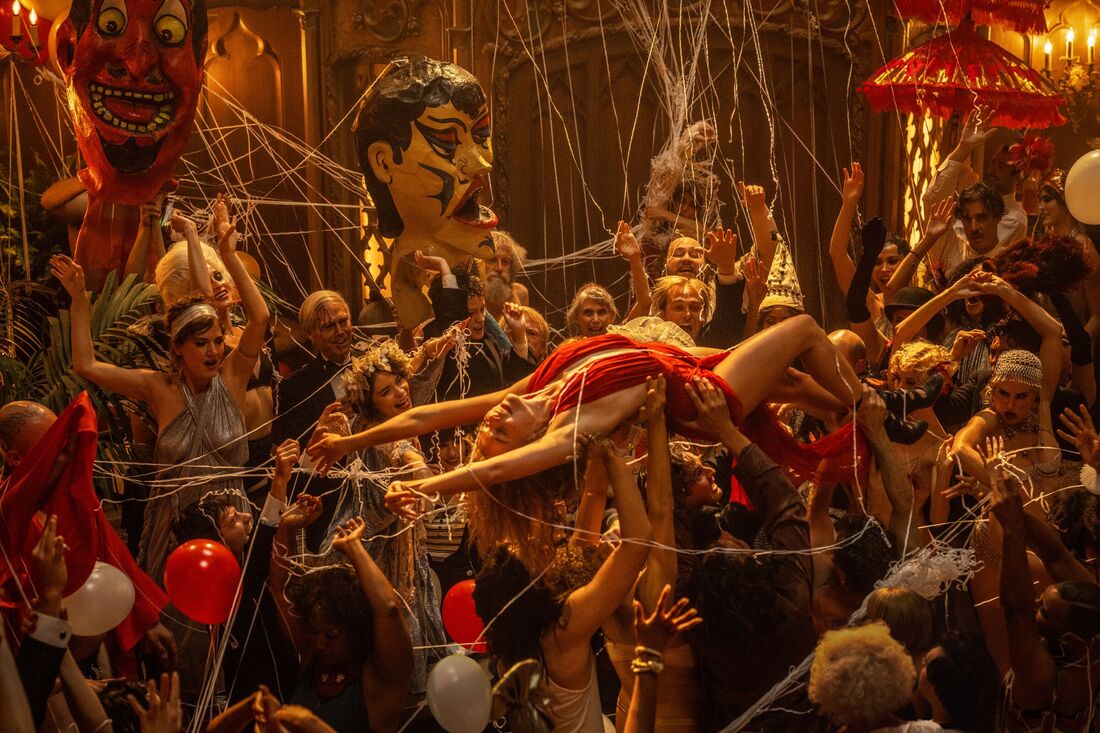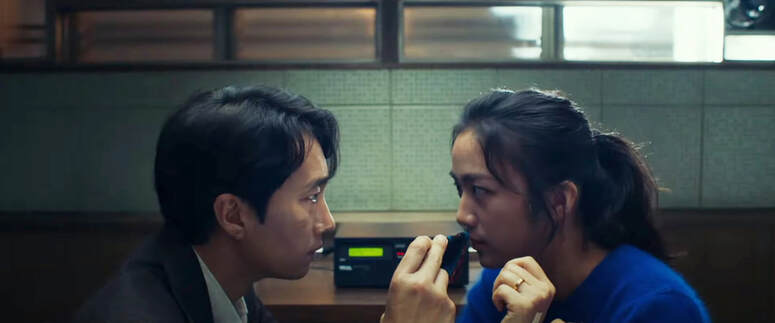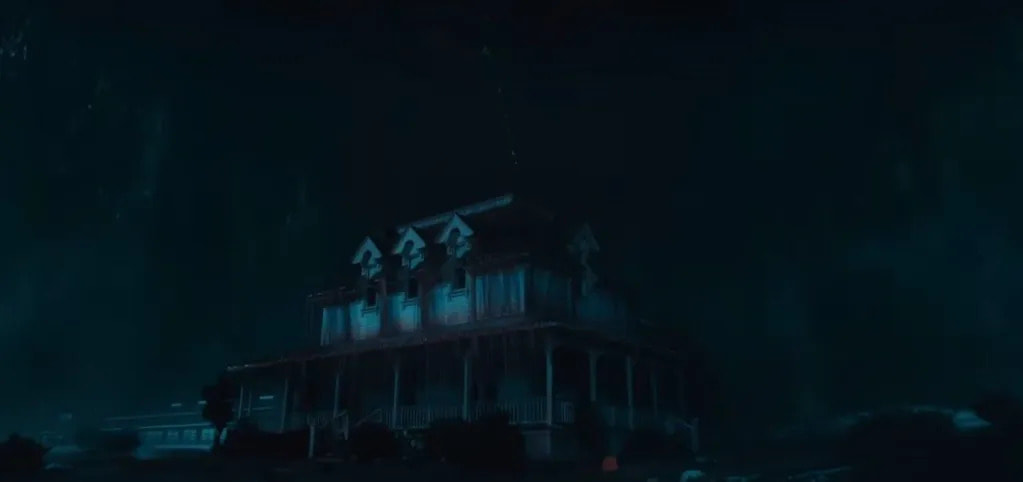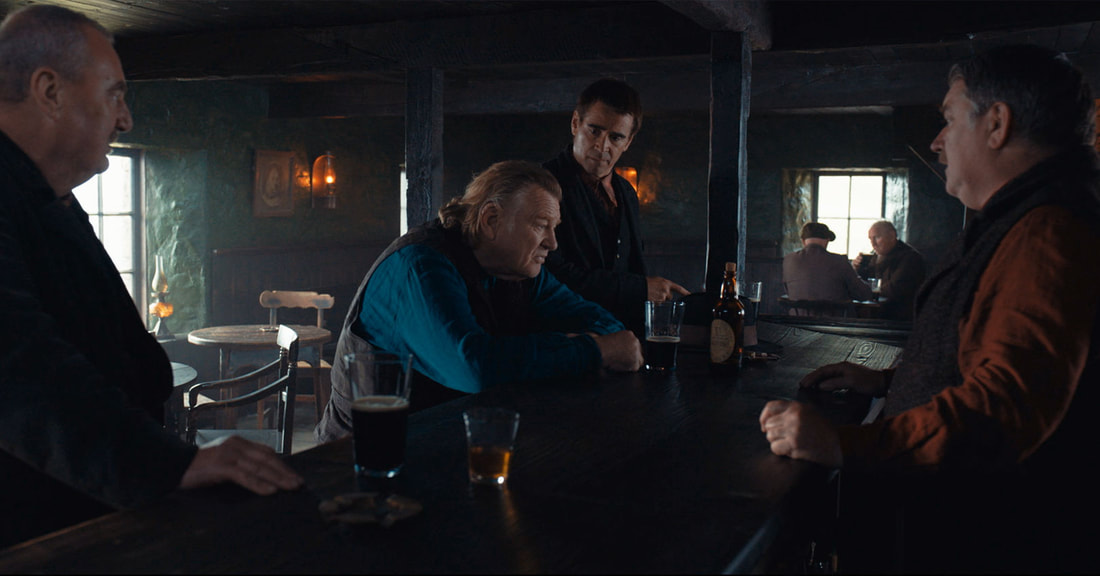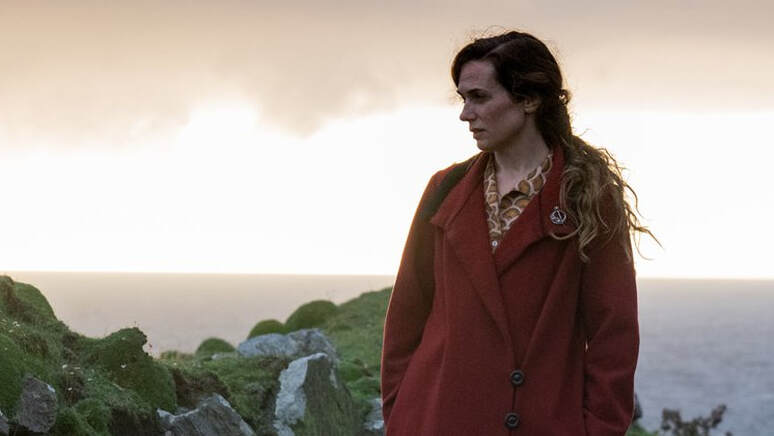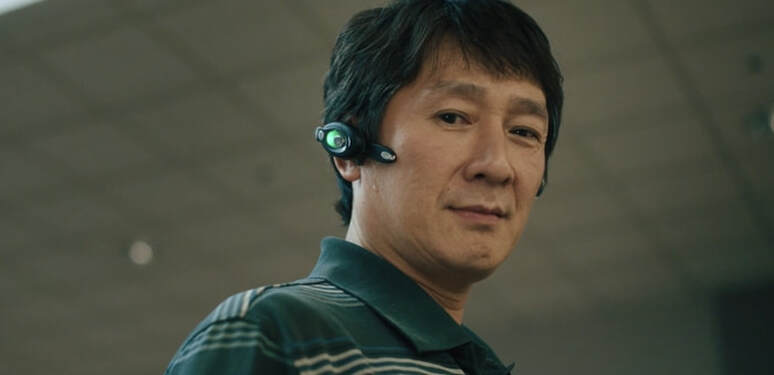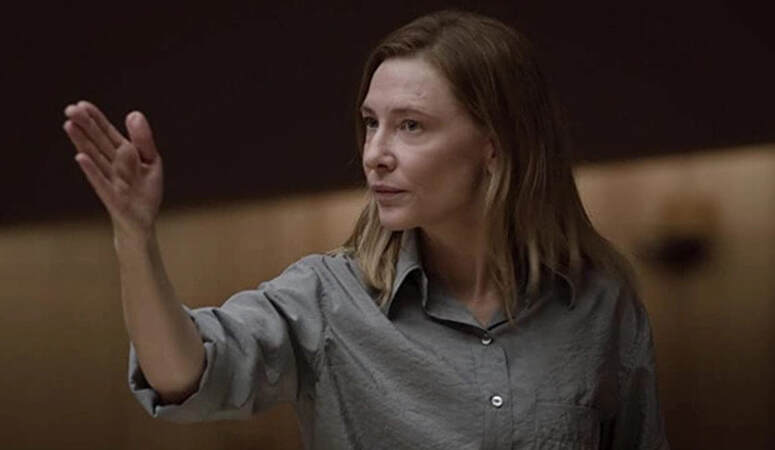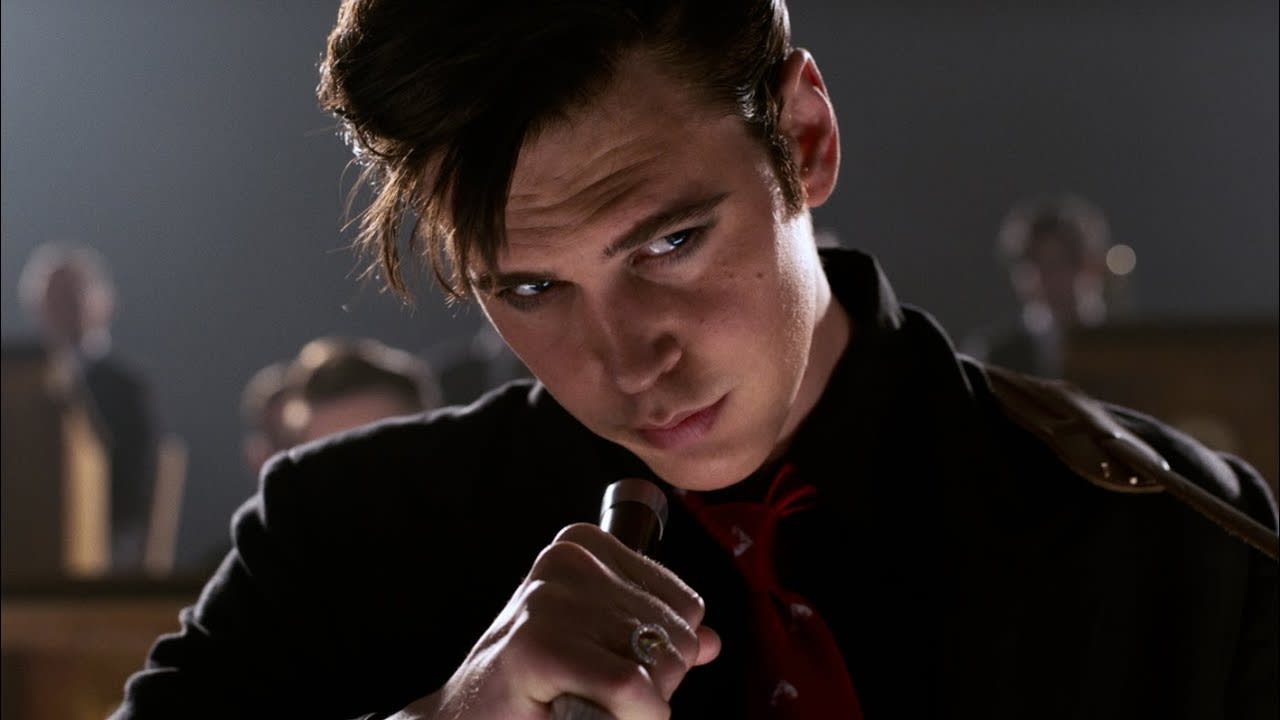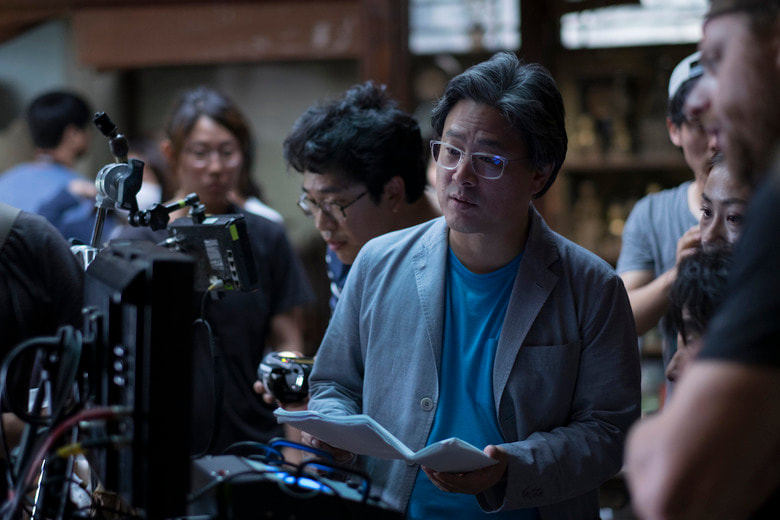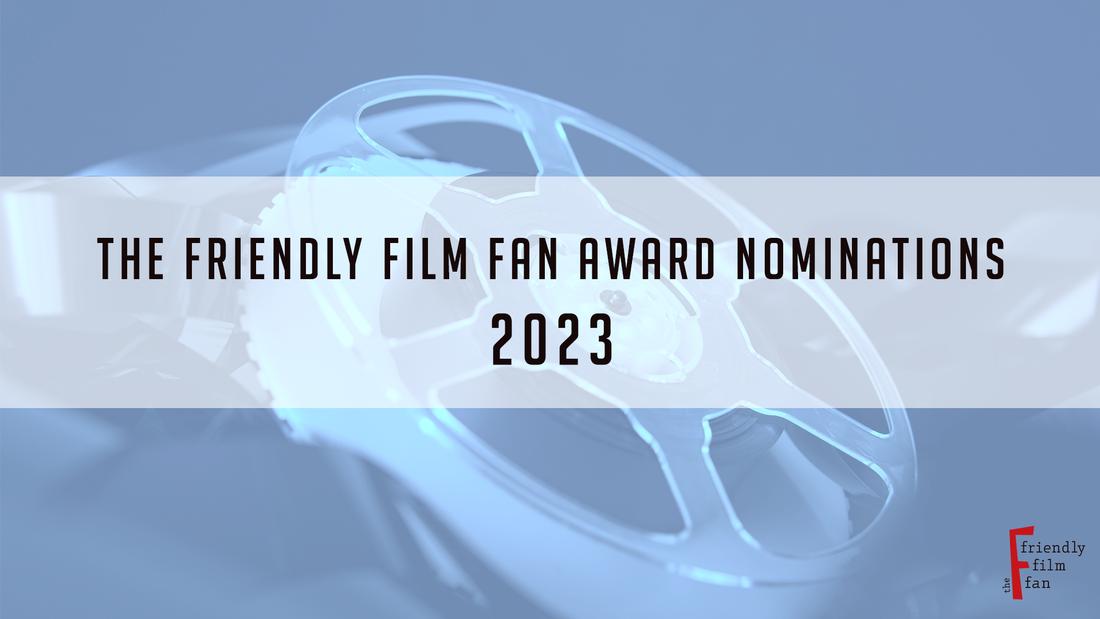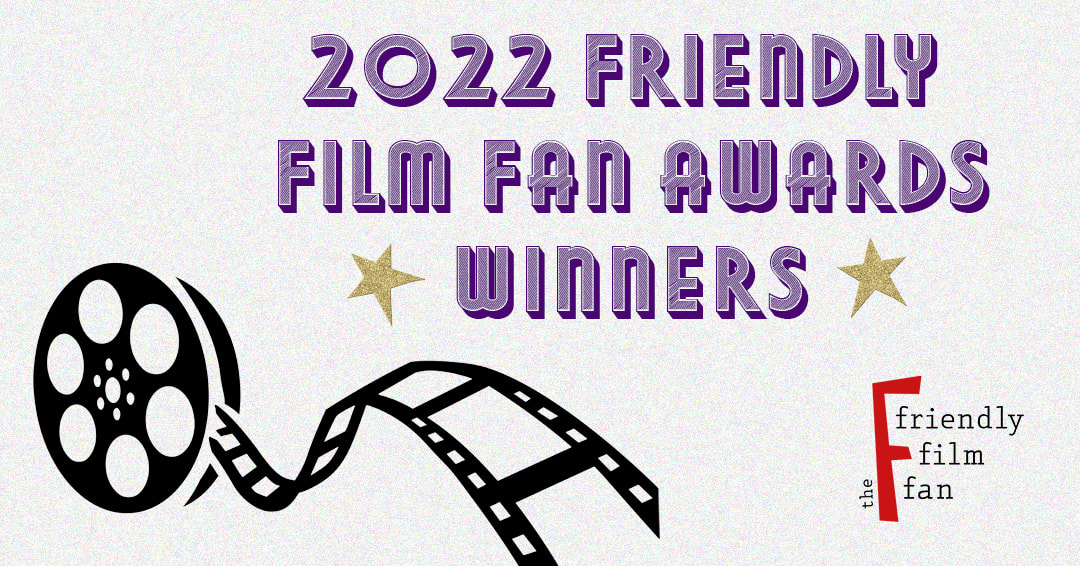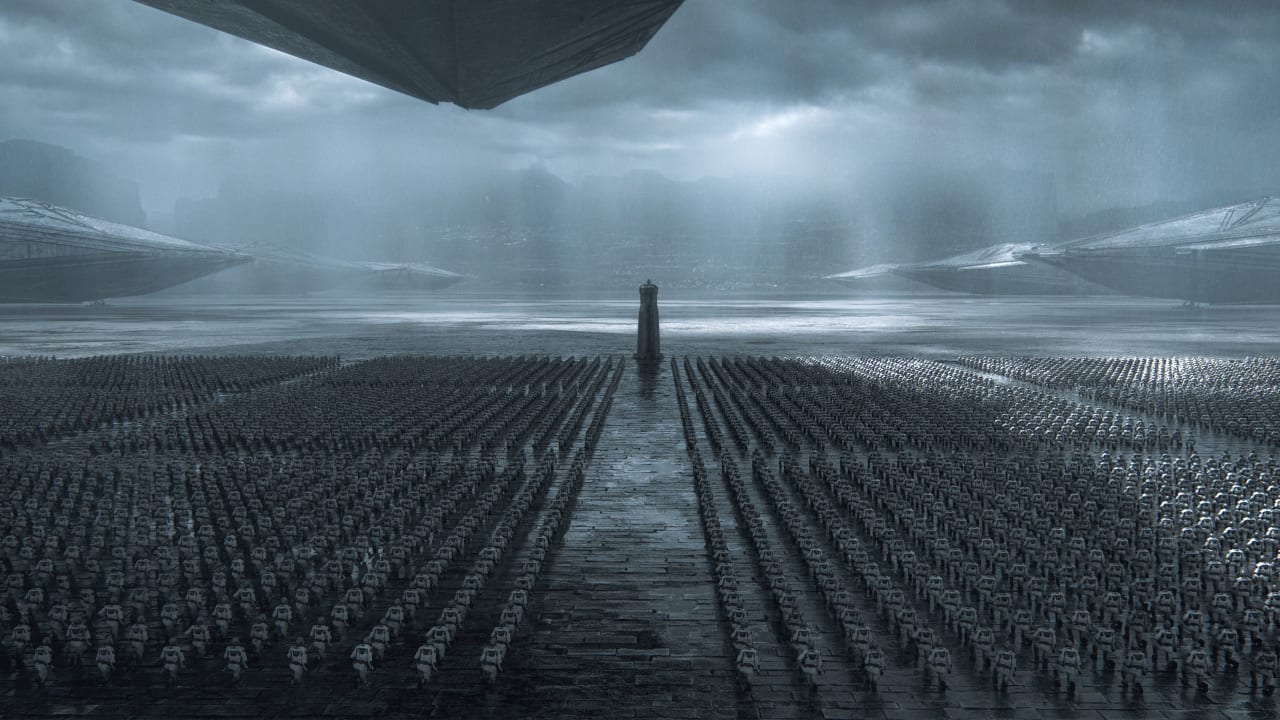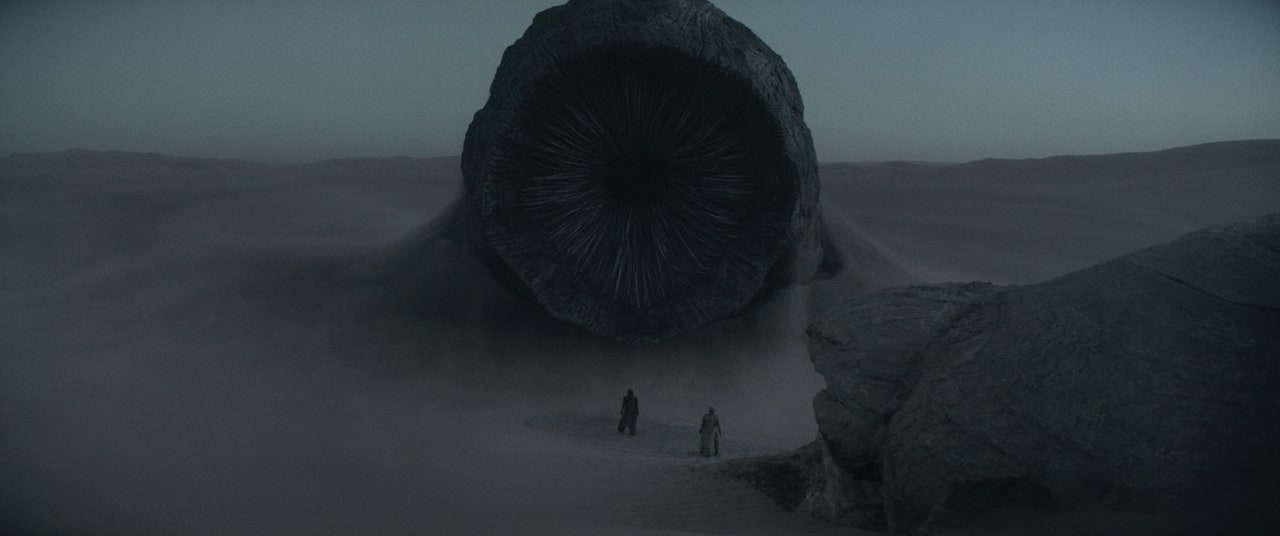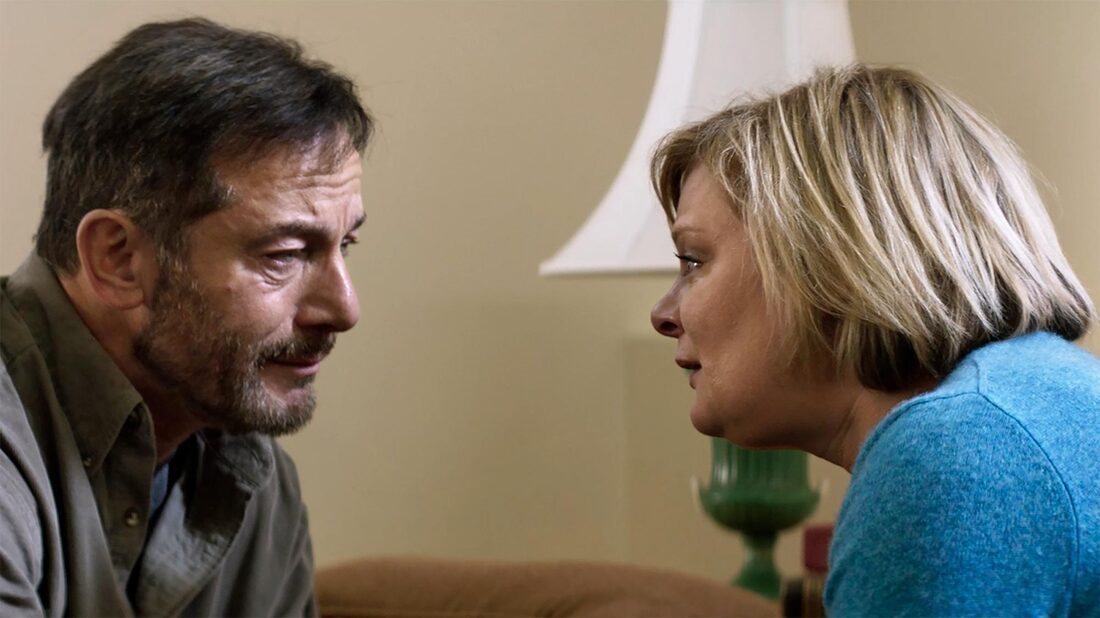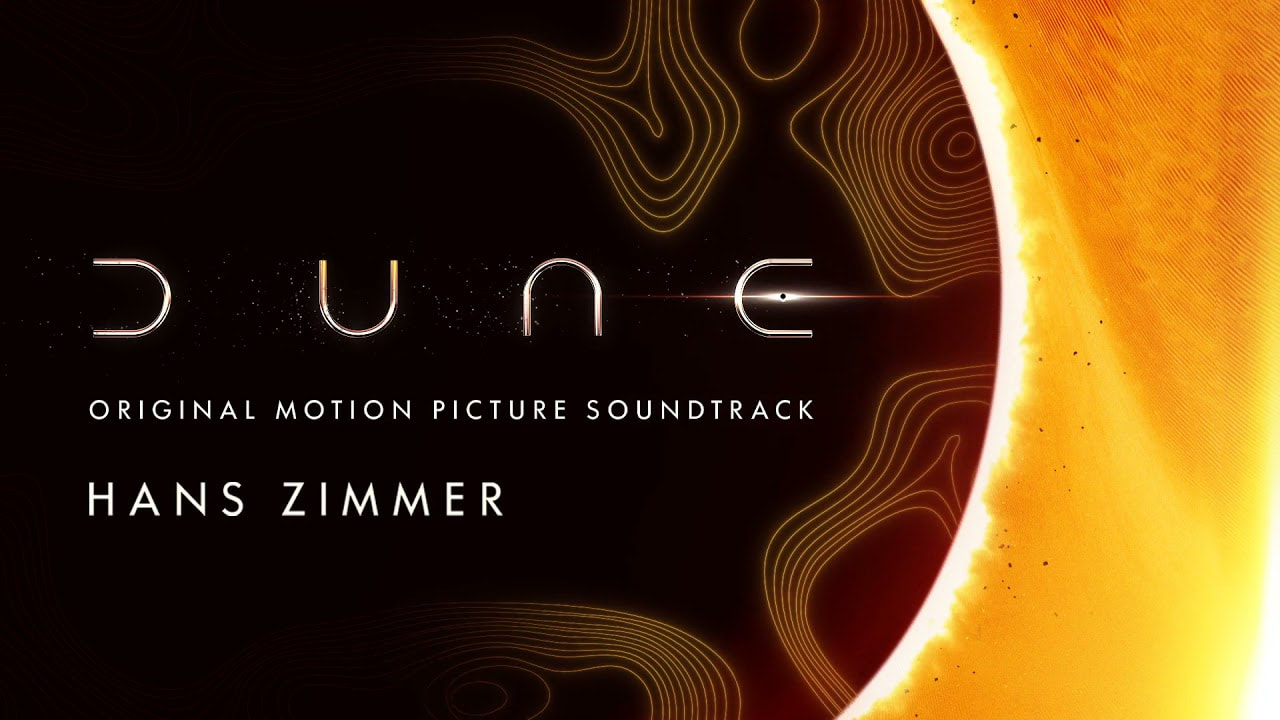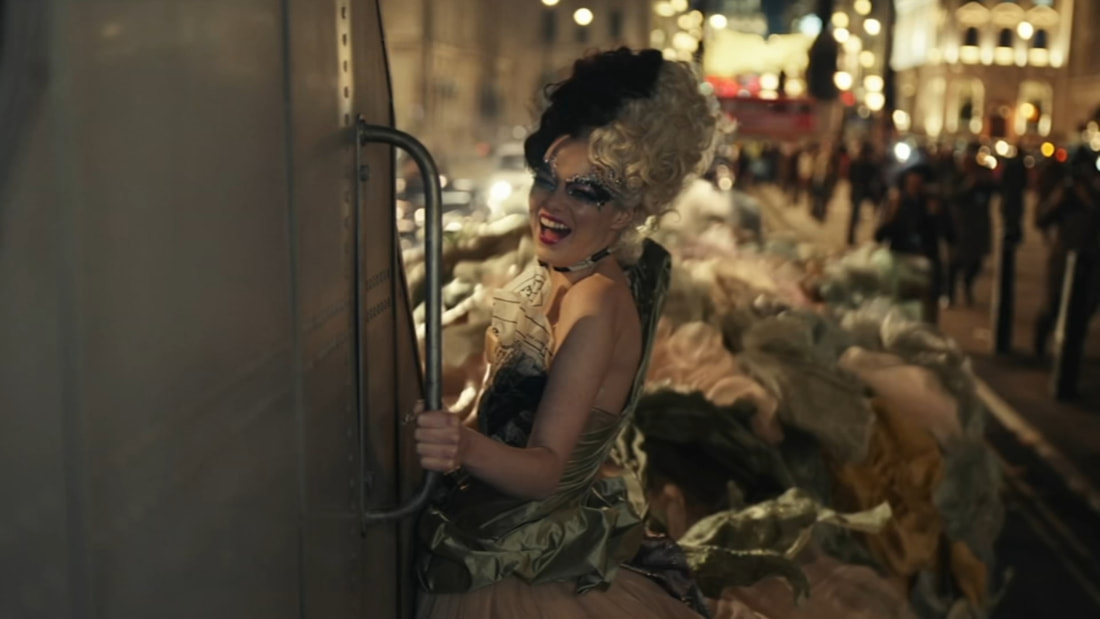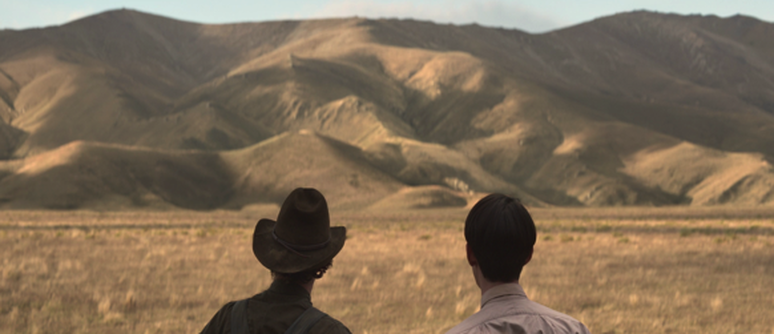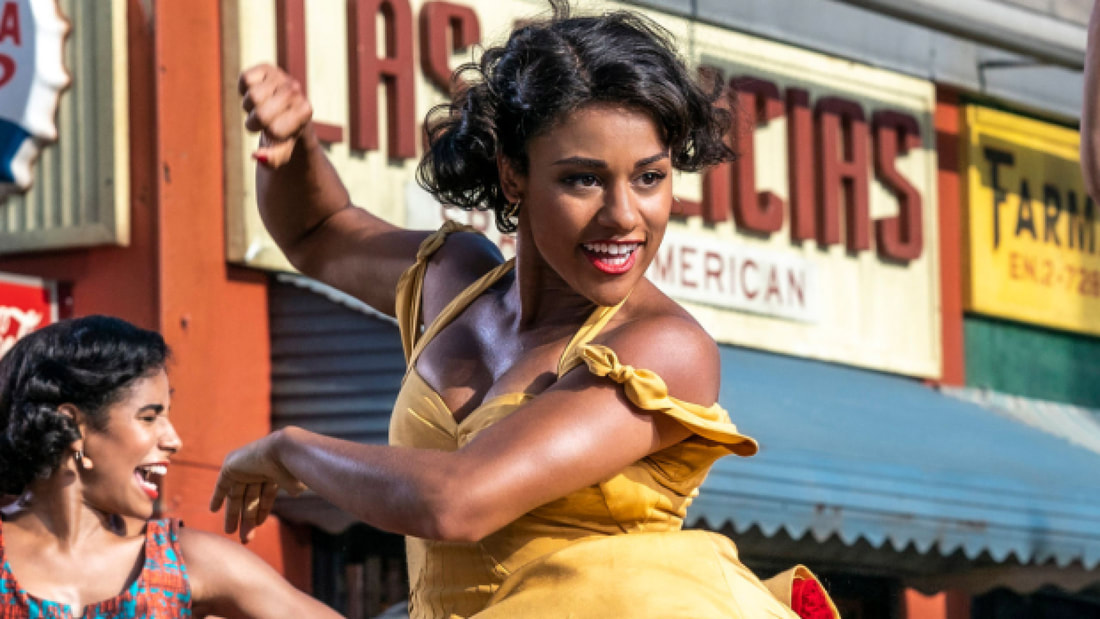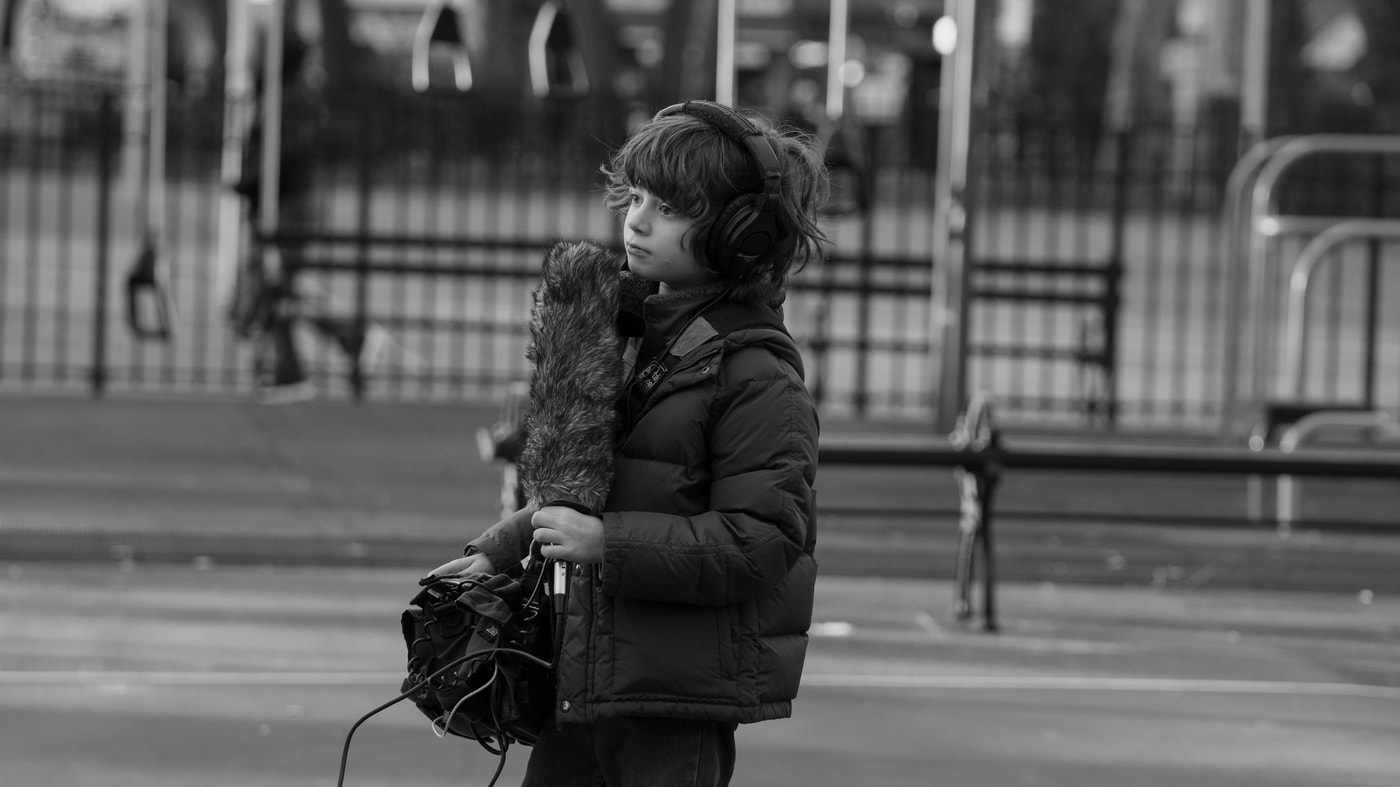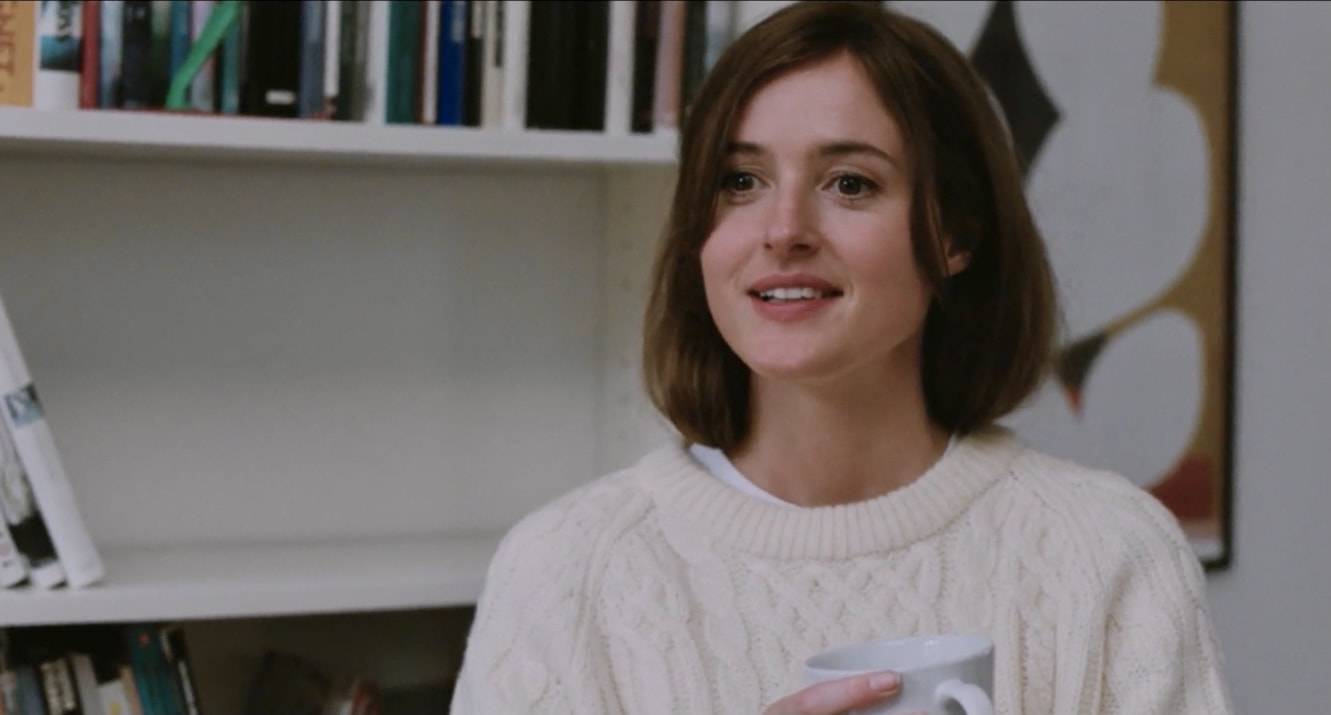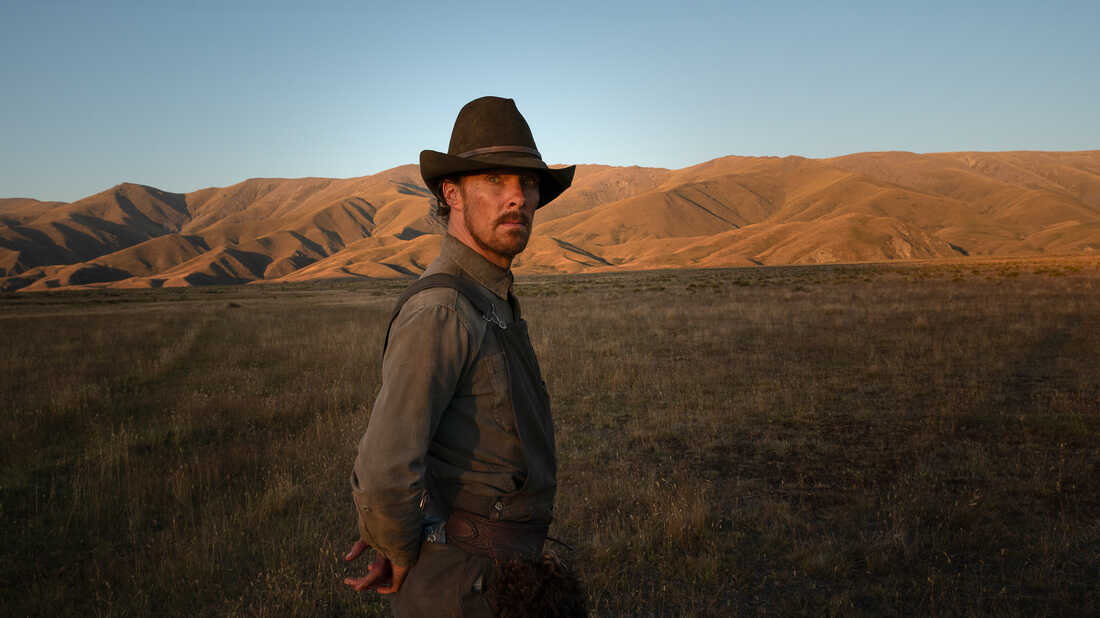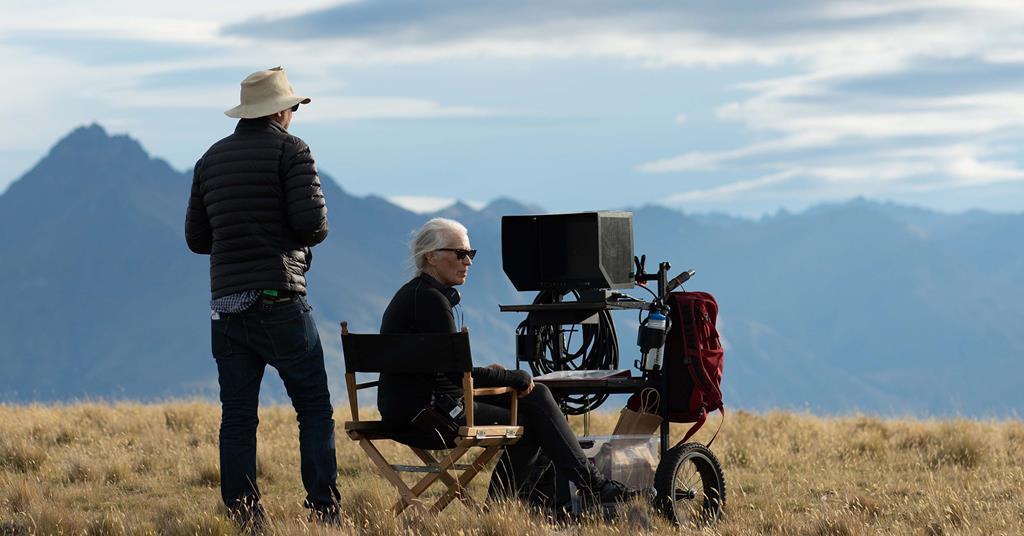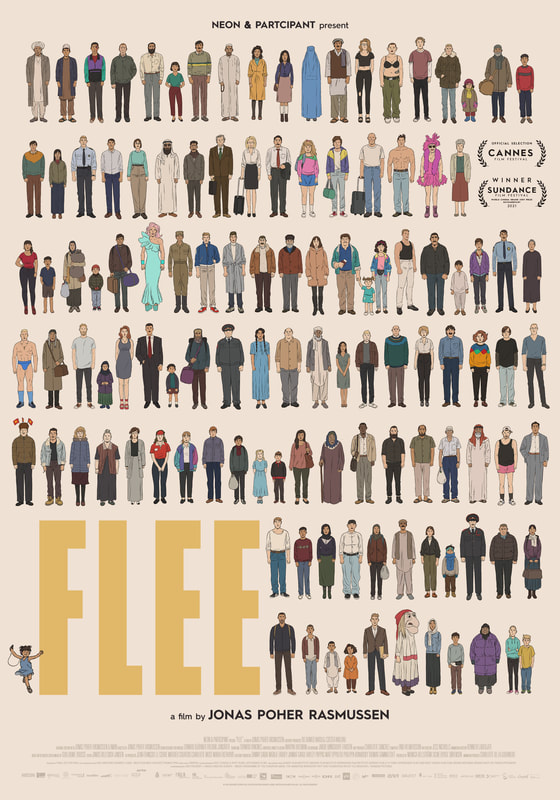|
The winners are finally decided. Ladies and gentlemen, and those who identify as both or neither, the time has finally arrived! Now that the Oscars are over, it’s time to get to the awards you’ve all actually been waiting for, as we officially announce the recipients for the 2024 Friendly Film Fan Awards! 2023 was a spectacular year for movies, from bombastic, action-heavy blockbusters to intimately still indies and everywhere in between. Filmmaking rose to new heights, design work was re-contextualized and innovated upon, and performances and scripts reached some of their greatest potential to date. It all comes to a head here, as we head into our first category of this year’s FFFA contenders, beginning with… BEST SOUND DESIGN The Nominees:
To put it lightly, Sound was a stacked category this year; The Creator’s bridge sequence remains one of the year’s most underrated in this respect, both Oppenheimer and Maestro’s best scenes featured sound that – while undoubtedly loud – was as crisp and clear as could be, and Spider-Man: Across the Spider-Verse’s soundscape not only matched but often informed the look and movement of much of its stunning animation. However, there was one film that came out clear ahead of the others, with a soundscape that not only told a deeply unsettling story just beyond the frame, but stuck with us long after the credits rolled and became in many ways the film’s defining element: Jonathan Glazer’s masterfully-told The Zone of Interest. A family drama about an SS Officer in Nazi-era Germany working at the Auschwitz concentration camp, The Zone of Interest uses its sound not to accentuate what’s happening on screen, but to constantly remind the viewer of the horror of what’s occurring off of it; the juxtaposition of its slice-of-life story against the lives those slices are taken out of renders the viewer not simply motionless but sickened, entirely dysregulated by way of the unyielding churns, screams, gunfire, and cries of a people’s erasure from life itself. Whereas the other nominees’ sound designs are one of several elements used in crafting their films’ identities, in many ways sound itself is Zone of Interest’s entire identity. There simply is no finer example of its use in film this past year. BEST VISUAL EFFECTS The Nominees:
When it comes to visual effects, it’s important to remember that “visual” is the key term, not “computer-generated.” For all their wonderful work this year, from the miraculous Ginza attack sequence in the now Oscar-winning Godzilla Minus One to Mission: Impossible’s stellar blend of both practical and CG effects, there was no film for which the visual effects were crafted – or employed – quite like Oppenheimer. Though entirely devoid of CGI, the interstitial and often dreamlike effects which constantly interrupt the frame remain nonetheless the best-looking of any film released last year, supporting their titular character’s fractured and frantic state of mind at every possible juncture in the story. The ways in which many of these effects were achieved is not simply worthy of recognition with a nomination here, but in our view, far and away the clear choice as the ultimate winner in these Friendly Film Fan Awards. BEST SCREENPLAY The Nominees:
Narrowing down the field of exceptional screenplays this year down to a mere five nominees across both the adapted and original spectrum was in itself a herculean task which took us multiple days to finalize, so you can imagine the stress levels involved in choosing a winner from these five unbelievable scripts. Ultimately, though, we elected to go the same route the Academy did; while we absolutely loved the delicacy of Past Lives and all it left unsaid, the screenplay for Anatomy of a Fall remains a completely undeniable tour-de-force, an overtly brilliant examination of how legal proceedings uncover so much more than simply who is or is not guilty in the eyes of the law. Whether one believes the decision made at the end of the film or otherwise is entirely irrelevant to the journey of Sandra Hüller’s character, to the unraveling of her relationship to her partner, how it infects everything around it, and how their mutual behaviors are seen by their son (played fantastically by Milo Machado Graner). It’s a magnificent achievement in screenwriting, and is – at least in our eyes – the correct choice for Best Screenplay. BEST SCORE The Nominees:
There was a lot of great work in film compositions this past year, some of which the Oscars forgot to include in their own nominations (looking at you, snubbers of Across the Spider-Verse), but if you’ve followed us for any significant length of time, you’re well aware that one score came out far ahead of the rest of the rest of the pack, which is why we’re more than proud to fall in step with the Academy with our choice of winner, Ludwig Göransson, for his incredible work on Oppenheimer. Simultaneously classical and timely, urgent and inevitable, Oppenheimer’s score is not only the best example of the use of music in film over the past year, but one of the best compositions of music committed to film in the past several. Göransson has quickly become one of the finest working musicians in any business, and his work here stands as a testament to both his immense talent and his constant growth. We can’t wait to hear what he has planned for us next. Congratulations, Ludwig, on your historic win here today. BEST CHARACTER DESIGN The Nominees:
When it comes to the design elements of any given film from the past year, it has been a two-horse race all the way down the line, with Poor Things ultimately taking the Academy for a ride in Production Design, Costume Design, and Makeup & Hairstyling one after the other after the other. While we absolutely loved all the design work in Poor Things, however, our Best Character Design award – a combination of those latter two Oscars categories for the sake of efficiency and nominee pool expansion – goes to Barbie, which not only brough the titular dolls to life in vibrant color and unmistakable definition, but often informed where characters found themselves emotionally at different points throughout the film; plus, the looks are just plain fun! Barbie was a design juggernaut this year, among other things, and we couldn’t be happier to recognize all the incredible work on display in it, which also leads us to… BEST PRODUCTION DESIGN The Nominees:
Another white-knuckle race between Barbie and Poor Things in which the latter ultimately came out on top in the Oscar race, Best Production Design was yet another stacked category this year, from the entirely created visual worlds of Poor Things, to the flawless realizations of life-size fantasy worlds in our ultimate winner, Barbie. We’ve all heard the story about the global pink paint shortage cause by Barbie’s immaculately-rendered Barbieland, but what we’re more interested in here is actually the construction and architecture of the world itself, rather than simply the colors used. Yes, Barbie has previously-realized visual palettes to draw from whereas Poor Things does not, but it’s in how entire sets were constructed as tangible, life-size versions of those palettes that we find the magic of Barbieland, set against large-scale matte paintings that both inform and accentuate the fantasy elements present in the film. Barbie is more than worthy of this award, and we’re proud to be the ones to hand it to the entire Production Design team. BEST FILM EDITING The Nominees:
When it comes to film editing (not to sound like a broken record), there were a lot of pretty stellar examples this year, from The Zone of Interest’s decisions of what not to include, to May December’s “not enough hot dogs” cut, to the Academy’s choice of winner, Jennifer Lame’s frantic-yet-clear and unmistakably masterful edit of Oppenheimer. However, when it comes to editing, more than just speed and organization of fractured narratives matters – pacing matters, and no film is a finer example of prioritizing pacing over speed than Killers of the Flower Moon, edited by one of the best to ever do it, Thelma Schoonmaker. Killers’ edit doesn’t exactly make the film feel shorter, but that’s entirely by design; we’re meant to sit in the discomfort, in the dread, in the dismayed horror of what’s happening to the Osage nation at the hands of our protagonists. And when there is a lull (though there’s never a drag), we’re meant to feel that to, as though we need this to be over as much as the Osage do. Schoonmaker’s edit moves at the clip it needs to, always pushing forward but never without the push of the characters within it; it moves when they do, and for that reason plus many others, it’s our choice for the Best Film Editing of 2023. BEST CINEMATOGRAPHY The Nominees:
Neon-soaked or black-and-white, this year’s cinematography nominees produced some of the most iconic and stunning looks in film history, with purposeful camerawork which highlighted the immense power of many of their subjects by placing at that power’s center those helpless in the shadow of it. However, gorgeous images notwithstanding, cinematography is about more than just how the frame looks on the screen; it’s also about whether or not the look feels fitted to the story it’s in, how the camera’s movement is both informed by the world and in turn informs how the characters are seen within that world, which is why in our humble opinion, no nominee this year quite so deserves this award as Robbie Ryan for his brilliant work in Yorgos Lanthimos’ Poor Things. The cinematography in Poor Things speaks not simply to the innovation required to capture some of these frames (a 16mm lens on a wide-angle camera? Who does that?) but the inspired choices in movement and what the frame is able to capture because of it. Almost every time Bella is with Godwin Baxter and Max McCandles, the shots are static, still, not ugly but lacking in fervor, whereas when she is driving the story out in the world, the movement is fluid and full of life. These choices reflect Robbie Ryan’s skill and his attention to detail in Poor Things’ storytelling, which is why his cinematography is our choice for this year’s Friendly Film Fan award. BEST STUNT ENSEMBLE The Nominees:
If and when the Academy finally does recognize stunt work with a real Oscar rather than a half-hearted montage clearly intended to advertise the presenters’ upcoming film, there will need to be a reckoning (a dead one, perhaps) with the decades of stunt work they have continuously elected not to award, even as they are introducing a clearly politically-motivated “Best Casting” award at next year’s ceremony since most of the higher-ups in the Academy at the moment are – you guessed it – casting directors. All that said, while the specter of Tom Cruise looms large over the entire stunt world for his continuously dangerous escalation of Mission: Impossible’s defining feature, this year’s award goes to another action franchise which has become perhaps an even bigger name in the stunt world over the last decade: John Wick. John Wick: Chapter 4 is chock-full of some of the best stunt work in the series to date, and whether or not one finds some of its non-stop sequences overwrought or occasionally too silly even for this franchise, to watch them play out is still undeniably impressive. From the Dragon’s Breath shootout to the staircase fall to a nightclub fight up there with the best ever committed to screen, Chapter 4’s stunt ensemble is without question one of the best in the business, and more than deserves this award. BEST ENSEMBLE The Nominees:
There were many acting ensembles over the past year without which their films could not have risen to the level they did, but sometimes the bench is just too deep for other nominees to overcome; such is the case with Oppenheimer, which packs some of the best character actors of their generation – including previous Oscar winners – into single-scene bit parts simply due to higher-volume roles already filled by other high-level talents working at the top of their game. From Cillian Murphy to Robert Downey Jr. to Matt Damon and Emily Blunt in high-profile parts to actors like Josh Hartnett, Kenneth Branagh, David Krumholtz, Florence Pugh, Alden Ehrenreich and Benny Safdie in more supporting roles to Casey Affleck, Kenneth Branagh, Rami Malek, Alex Wolff and even goddamn Gary Oldman for no more than five to ten minutes of screen-time each, Oppenheimer possesses one of the all-time great ensembles in the history of the term, and for us here at The Friendly Film Fan, there was simply no other choice but to award it Best Ensemble. BEST SUPPORTING ACTRESS The Nominees:
Every great supporting performance by an actress this year was full of triumph, heartache, or often a mix of both brokered by either a sense of unbound piece or unresolvable brokenness. Both grief and closure rested upon all these women’s shoulders, some of whom even became the very foundations of the films in which they played a part, even if they weren’t the main characters. From Maura Tierney to Rachel McAdams, each of these performances stood out amongst the best the year had to offer…but the clean sweep is now complete as the winner of Best Supporting Actress, which she has been all season long, is Da’Vine Joy Randolph. Randolph’s work in The Holdovers grounds the film from its other two primary characters’ more absurd antics, providing the soul of the narrative and unerringly driving home the themes of found family and closure over deep-seated grief, even if that closure is not entirely completable. It’s a performance that comes at just the right time for an actress who’s only at the beginning of what’s sure to be a long and fruitful career of exceptional work, and while we don’t like to think of ourselves as an “it’s time” awards body, it is the right time – now – for her to receive her first of what very well might be many Friendly Film Fan awards wins. BEST SUPPORTING ACTOR The Nominees:
While there is no denying the raw yet underplayed power of Robert Downey Jr., the sheer charisma of Ryan Gosling, the devious bastardity of Robert De Niro, or the devastating vulnerability of Milo Machado Graner, there was one more performance which for us cemented its giver not simply as a talent we didn’t expect, but one we had severely underestimated, which is why our Best Supporting Actor winner is Charles Melton for his incredible performance in Todd Hayes’ May December. Melton’s performance is filled with an innocence of self that’s fully aware of how violated that innocence has become, just how lost it is in the scramble for its own resurrection which can never occur. It’s a devastating turn from an actor no one realized was capable of such enormous depth – at least not at this level – and it took us completely by storm. Charles Melton, we will never again underestimate what you are capable of. BEST ACTRESS The Nominees:
As much as we love every lead actress performance nominated here this year, plus several others there simply was not room to nominate, we can only be ourselves, and declare along with the Academy that yeah, there just wasn’t a better performance this year than Emma Stone’s career-best work in Poor Things. There may be other, more historically significant performances, or even more palatable performances in many ways, but from her physical movement in an absurdist dance number to her dialect to her decision on when to move and when not to, Emma Stone’s performance was something truly extraordinary, something new, something we’ve never seen anyone do before. From minute one, you can track her development as a character through her eyes, her face, and how she moves, and Stone never once loses the audience or makes it unclear exactly what stage of personal growth Bella Baxter finds herself in. It’s truly an astonishing turn from an actress who’s always been known to be, but now in undeniably and entirely, fearless. Well done, Emma Stone; you now have not only two Oscars, but two Friendly Film Fan Awards! BEST ACTOR The Nominees:
Most Oscar-winning performances, with some limited exceptions, are loud, boisterous; they call attention to themselves as the audience is sucked into the gravity of the actor giving it everything they’ve got – they’re also, often, not unworthy as many would have you believe. Were it not for the sheer power of quiet in many of this year’s nominees, Bradley Cooper could be walking away with this award, and yet, the quiet eyes of Teo Yoo in Past Lives speak so much love into the film that goes entirely unsaid; we’d be fools not to hand him this award. Yoo’s performance is so deeply felt so as to almost be unnoticeable, so subtle as to be invisible – it’s a performance full of yearning, longing, full of grief over what was lost and acceptance that even though he can never get it back, what is given will have to be enough, and he accepts making peace with that notion. The ending of Past Lives may rest on Greta Lee’s incredible breakdown, but its middle and third act are largely carried by the shoulders of Teo Yoo, and we’re proud to hand him the Friendly Film Fan Award for Best Actor. BEST DIRECTOR The Nominees:
Sometimes great direction is all about not getting in the way, about letting what’s in the frame dictate where the story goes and the feeling it gives an audience. But other times, such as in this case, the best direction we saw all of last year was all about control: understanding not only what to put in the frame, but what to never put in it, leaving one’s mark on celluloid so unmistakably that no one can question what it is you have to say, making every step along the way with absolute conviction so that none fall falsely along the way. This is what makes Jonathan Glazer’s direction of The Zone of Interest so undeniably powerful. To never travel inside the walls, to always present atrocity as slice-of-life-adjacent is to condemn the world for their own complicity, for their silence in the face of absolute horror. If these things are allowed to continue so casually in one man’s backyard, who’s to say that such apathy can’t extend to neighboring countries or the rest of the way across the globe? Glazer’s presentation of Zone of Interest presents the depths of human depravity, of just how twisted and untethered the soul can become, and leaves it up to his audience to do the examinations of such evil themselves. No matter how we feel individually, we are all capable of collective atrocities, and our mere silence, our desire to shut it out so as not to feel its sickening infection of comfort in the face of unspeakable evil, might be the worst of them all. And finally, the one you’ve all been waiting for… BEST PICTURE The Nominees:
We’re fast approaching the point when Martin Scorsese will no longer be able to make movies, so for the master to offer up his own self up to this kind of scrutiny and vulnerability in filmmaking this late in his career is not simply a treat for movie fans, it’s a miracle for cinema itself. Killers of the Flower Moon may not be a perfect film; in fact, on a technical level, it might not even be the best one amongst these ten nominees. Yet, for any faults it has, it is the movie which has defined year in film for us, even more so than Barbie or Oppenheimer. Scorsese not only tells the story of the Osage Reign of Terror with grace and conviction, but confronts in the film’s ending the very idea that he’s made this story into a visual entertainment art piece at all, why on earth human beings feel it so essential to bring tragedy into an entertainment space, and why – even when we mean well – we will always fall short in telling stories that don’t belong to us. With every subsequent revisit, the film only gets better and better, and we imagine it will only age the way movies themselves do as its legacy becomes more than anyone thought it could be. It doesn’t simply possess one of the great movie endings of the last ten-to-twenty years, it is one of the master’s greatest-ever works, and we count ourselves lucky to not only have been around for its unveiling, but to name it the Best Picture of 2023. And those are your 2024 Friendly Film Fan Awards winners! What would you have picked to win from this list? Do you have your own nominations to share from last year? Let us know in the comments section below, and thanks for reading!
- The Friendly Film Fan
1 Comment
Hello all, and welcome back to The Friendly Film Fan! 2023 was an excellent year for cinema, and to that end, it’s time to celebrate what a special year it was. If you tuned in to our Instagram live earlier, you’re already familiar with how this list is going to work, but for those of you who didn’t get a chance, The Friendly Film Fan Awards patterns itself after the Oscar Nominations with a few light twists: Costume Design and Makeup & Hairstyling are combined and expanded under the category of Best Character Design, and The Friendly Film Fan Awards includes the additional categories of Best Ensemble and Best Stunt Ensemble. We also do away with Best Animated, International, and Documentary Feature categories, as well as the Short Films. With all those changes out of the way, let’s recap our choices for the best in cinema over the previous year. Here is the full list of the 2024 Friendly Film Fan Awards Nominees! Best Picture:
Best Director:
Best Actor:
Best Actress:
Best Supporting Actor:
Best Supporting Actress:
Best Ensemble:
Best Stunt Ensemble:
Best Cinematography:
Best Film Editing:
Best Production Design:
Best Character Design:
Best Score:
Best Screenplay:
Best Visual Effects:
Best Sound Design:
The Friendly Film Fan Reveals the Winners for the 2022 Movie Season. Hello, all, and welcome back to The Friendly Film Fan and to the 7th Annual Friendly Film Fan Awards! As most of you are no doubt familiar with the nominees by now, it’s time to select our winners for this cinematic year of 2022. There was a lot to celebrate, from the return of audiences to theaters in a very big way, to the sheer amount and skill level of art in the movie world having come to bear to the discovery of new and exciting voices in the cinematic space ready to make their mark. Having deliberated on these winners for nearly a month now, it is time to reveal who actually takes home the trophies we don’t have so they can all brag to their friends about them. Here are you winners for the 2023 Friendly Film Fan Awards! Best Sound Design:
When it came to movie sound in 2022, there simply wasn’t a more exciting, adrenaline-pumping experience than Top Gun: Maverick. From the roars of the F-18 fighter jets to the sonic booms of the Darkstar, every last bit of audio was perfectly calibrated to get our collective need for speed as sky-high as it could be. I can still hear those flares in the final mission. Best Visual Effects:
True, it may seem like a moot point to even have a Visual Effects award during a year where James Cameron released an Avatar sequel, but the work Cameron and his VFX crew are doing should not go uncelebrated, nor should the other stellar work this year in the rest of the nominee pool. Revolutionizing visual effects is just what Cameron does in his films, but the notion that there could be yet another VFX revolution at all is certainly notable. Plus, when fully CG creatures look this convincing, it’s hard not to watch in awe all the same. Best Screenplay:
I’ve waxed ad nauseum about how Todd Field’s masterful script for TÁR had any number of people convinced that its lead character was a real person, but beyond that, it’s painfully well-balanced across a plethora of themes which are seldom this nuanced. Notions of power, abuses of it, who actually has it, how it’s wielded, whether it can actually ever be taken away from those who have it – these are all present here in any variety of ways, as well as many other themes like artistry vs. pretention. Plus, “U-Haul lesbian” Cate Blanchett. Need I say more? Best Score:
Yes, the Oscars got it wrong, as we expected they would, but here at The Friendly Film Fan Awards, justice shall prevail! Justin Hurwitz’ mammoth score for Babylon is one of the decade’s finest to date, and not only in motion pictures. One only needs to here “Welcome” and “Voodoo Mama” to be absolutely convinced that Hurwitz may be one of the most important composers of the modern era in any field of music, but the fact that so many other tracks are also certified bangers is what changes that “may” to “is.” Best Character Design (Costumes + Makeup & Hairstyling):
While period pieces, films about African tribes, comic book adaptations, and even wacky multiverse-jumping fare often all have fantastic costume design work within their frames, there is something to be said for the way contemporary costumes accentuate characters’ personalities, and there was no movie better at that particular thing in 2022 than Rian Johnson’s blast of a murder mystery, Glass Onion. In every scene, each character is wearing something that speaks to who they are as people, good and bad, including Benoit Blanc himself. Turning Janelle Monáe from a formalistic tech founder into a regular Alabaman and back again in the course of one feature really is a feat of its own, but the fact that this film also managed to give us Daniel Craig’s striped swimsuit is reason enough to hand it this award. Best Production Design:
One of the only Oscars Babylon was certain to win still managed to get snatched away by All Quiet on the Western Front’s dominant technical night at the Academy Awards, but we here at The Friendly Film Fan, we recognize just how difficult it is to pull off designing an entire film’s look around an era chock full of the thing you’re making: a movie. The set of sets alone could win its own Oscar, or the party sequence as elephants crash in below the balcony or even the descent into hell in the film’s third act, but what sets Babylon apart from everything else is that the design is the story. Babylon is about excess, evil, triumph, defeat, being part of something bigger, and it doesn’t get much bigger than making the set you’re on the most essential piece of the story you’re telling. Best Film Editing:
There were moments in EEAAO where I truly felt that it had the best editing I’d seen all year. Then the same thing happened later with TÁR. Aftersun and TGM are made in the edit bay; you can’t tell those stories properly without the correct editor in the chair. Yet none of them – in my view at least – were able to pull off the astounding feat of editing in Park Chan-wook’s masterful Decision to Leave, weaving characters in and out of rooms at breakneck speed, changing from scene to scene in such creative fashion, match-cutting to some of the most heartbreaking shots of 2022 (mountains and seas, anyone?). To say that the editing in Decision to Leave is an achievement is as much of an understatement as one can make, but without doubt, it was the editing achievement of 2022. Best Cinematography:
The closest race at this year’s Friendly Film Fan Awards by far, The Batman and Nope were both neck and neck for a win in this category, a category so stacked in fact that there were at least three other films that could have also landed a nomination beyond the five chosen. However, if one is just edging out the other here, Hoyte van Hoytema’s stunning work on Jordan Peele’s Nope ultimately pulls through the stronger of both. Both of these films have excellent visual cohesion, incredible nighttime photography, and some of the year’s most striking single frames, like Batman walking towards an upside-down car or OJ’s run sequence; however, where The Batman tends to focus on the micro as a character piece (“what makes Batman who he is/what does being Batman mean”), Nope leans into the macro, and in a film dominated by the question of human beings’ relationship to spectacle, making the film itself a spectacle is a genius play. Best Stunt Ensemble:
There were some amazing stunt sequences in 2022. The Batmobile chase in The Batman, the fanny pack fight from EEAAO, the rescue battle from Woman King, hell there were four or five stellar sequences in RRR alone. And yet, there were not stunt sequences more impressive or entertaining to watch in the theater as those in Top Gun: Maverick. Even for the actors not flying the planes, simply being in them as the arial maneuvers happened in real time counts as stunt work; you can’t fake those reaction shots, for which the cameras had to be set in the jets before they even went up into the sky. Add onto that the fact that every single action sequence in TGM is one of the finest ever put to film, with real planes flying real people, and you have the makings of one of the most iconic stunt ensembles ever put to screen. Best Ensemble:
A film’s true power lies in its ability to captivate an audience, and the greatest tool a filmmaker has at their disposal to captivate an audience – apart from the story itself – is the cast they employ to tell that very story. Great ensembles can be chock full of performers having a great time playing fanciful characters or discussing a complex issue with nuance and grace or even simply working their asses off to bring us the best entertainment they possibly can as they push their bodies to the absolute limit. Then there are the smaller ensembles, groups of three or four exceptional storytellers bringing characters to life in order to tell a story on a more intimate or personal scale, often with one or two leads to carry the thrust of the tale being told. It is in this space that we find what were our two lead contenders in The Banshees of Inisherin and Everything Everywhere All at Once, and while the ensemble in EEAAO is an exceptional one, we’re sticking with Banshees for the win here, as there’s not one average or weaker performance among the whole bunch when compared one to one with its rival. We’ll see more of this cast later down the list, but for now, we’re just proud to name them the Best Ensemble of 2022. Best Supporting Actress:
Every one of the nominated performers in this category is a stick of dynamite in their respective films, some on the verge of explosion, some whose fuses have only just been lit. For all of Jesse Buckley’s steely resolve to Claire Foy’s righteous rage, each of the women in Women Talking could have all been nominated here to fill up the category all by themselves, but then how would we celebrate Dolly de Leon’s show-stealing third act turn in Triangle of Sadness or Stephanie Hsu’s immediate “taking over the movie” entrance as Jobu Tupaki in EEAAO? Each of these nominees is as worthy as the next and any one of them winning the Oscar would have been more than fine with us (although we have some…different feelings about the end result). For our part, however, no one quite stole our hearts and our heartbreak as thoroughly as Kerry Condon in The Banshees of Inisherin. Condon embodies one side of Banshees’ quiet tragedy more than any other, the idea that even the good people on the island, the ones trying to stop a metaphorical war from reaching its inevitable conclusion, eventually must choose to save themselves because that’s all there is left to save. It’s a note-perfect performance in a film with few – if any – false notes, and we’re proud to hand Kerry Condon the Friendly Film Fan Award for Best Supporting Actress of 2022. I’m sure the bragging rights will look spectacular next to her BAFTA. Best Supporting Actor:
As my personal favorite movie of the year, I knew I couldn’t let Everything Everywhere All at Once go home empty handed, even if it couldn’t quite stack up in some other categories like it did on Oscars night; luckily, there was no question in our minds or the Academy’s about which supporting actor performance stole the show in 2022. Ke Huy Quan came back to movies like a force of nature, bringing Kung Fu skill, a wide range of emotionality, and some of the most beautifully heartbreaking lines in cinema history roaring to life. “In another life, I would have really liked just doing laundry and taxes with you” rings as true as it does solely because of Quan’s fantastic performance, and as happy as we all were to see him win his Oscar, we’re even more overjoyed to hand him the 2022 Friendly Film Fan award for Best Supporting Actor. Welcome back, Ke! We’ve missed you, buddy. Best Actress:
Perhaps the toughest category to decide in the whole of this awards race, Best Actress may be the most stacked that this category has ever been to date, from Danielle Deadwyler’s gut-wrenching work in Till (at least the second-worst nomination snub at this year’s Oscars) to Tang Wei’s calculated heartache in Decision to Leave to Margot Robbie’s powerhouse exploration of stardom and misery in Babylon. Michelle Yeoh did take home the Oscar in that night’s closest race as well (and we are so proud of her for it!), but for us, there’s just something so undeniable about Cate Blanchett once more reaching a career high with her not simply perfect but outright transcendent performance in TÁR that we have been entirely unable to shake. Blanchett is Lydia Tár in the same way that RDJ is Iron Man, that J.K. Simmons is J. Jonah Jameson, and she joins the pantheon of abusive composer/conductors which Simmons himself occupies (Whiplash) as yet another of the most powerful performances in music movie history. One really only needs to see TÁR once to fully understand just how impressive Blanchett’s performance really is, like someone pointed a camera at her and just filmed her real job, to the point where – again – people thought Lydia Tár was a real person until looking her up. Yes, part of that is in the writing, as mention earlier, but in order to bring that writing to life, you need a performer at the top of their game throwing a perfect fastball every single pitch, and that’s exactly what Cate Blanchett does here. Congratulations Cate, here’s a Friendly Film Fan award to go next to your two Oscars. Best Actor:
Sometimes superstardom comes after years or even decades in front of the camera and sometimes it comes almost overnight; you just have to make the right move, and that’s what Austin Butler did in Elvis, a film I do not like led by a performance as powerful as any biopic turn I’ve ever seen. Sure, Butler had a stint as a Disney Channel star, but for this particular film, he so embodied the legendary musician that he’s still getting made fun of for not having dropped the vocal intonations of the icon well after filming and promo has wrapped on the film. It’s an easy performance to underrate when attempting to spread some love to the other nominees in this category, but when you do watch the performance all the way through, it’s easy to see why Butler became one of the fastest rising stars working today in a matter of months. The guy just has it, and we here at The Friendly Film Fan would like to be some of the first to recognize and reward him for what’s sure to be one of his most iconic parts. Best Director:
All of the nominees in this category turned in phenomenal work in 2022, and this almost went to Todd Field for directing one of the finest character studies of the last decade, but ultimately, there was not one director who seemed to have the most innate sense of control over his film than Park Chan-wook crafting a heartbreaking noir in Decision to Leave. Every move in Decision to Leave must be precisely calculated not only so audiences will invest in its characters and story but also so that no note in a story this twisty feels too complex for an audience to understand, even as the film’s plot remains as intricate as anything Chan-wook has made over the last ten years. It’s a quiet miracle – the bad kind Daniel Kaluuya refers to in Nope – that Decision to Leave was shut out of the Oscar nomination entirely, but here, as people of integrity, we not only have the film nominated in multiple categories, we award Park Chan-wook the Friendly Film Fan award for Best Director of the year. Best Picture:
And here we are at the award for Best Picture. It certainly has been a journey getting here, and every nominee in this category is as worthy of the next of recognition and celebration for the achievements they are. For our part, however, there was no more well-balanced, brilliantly-told, or quietly tragic film made in 2022 than Martin McDonagh’s The Banshees of Inisherin. If this were any other kind of film, the impact would be lessened – drama, dark comedy, etc. But Banshees roots itself in the tragedy of the inevitable and the all-too-easily preventable. None of this had to happen, yet all of it – like the Irish civil war the story is juxtaposed against – will inevitably lead to a worse outcome for all involved. The most innocent will suffer needlessly (as with Barry Keoghan’s character), the good will be made to save themselves alone (as with Kerry Condon), and at the end of the day, as the two men stand on the beach at the end of a long journey – or the start of one – neither will have learned their lesson, because one was too full of himself to see the damage he was doing and one was so hurt by that damage that the only thing he can now do is fight back against it. It’s a deeply acidic and feel-bad ending to a story that feels more honest than most stories allow themselves to be, and that, along with everything else it brings to the table (a stellar look, haunting score, and brilliant script to boot), is why we have named it the Best Picture of 2022. And so concludes this year’s Friendly Film Fan awards! What do you think of our winner selections? Are there any you disagree with? Anything you’re surprisingly happy to see walk with a victory? Let us know in the comments section below, and thanks for reading!
- The Friendly Film Fan The Friendly Film Fan Announces Its 7th Annual Awards Nominees. Boy, it has been a long road through awards season hasn’t it? All the guilds have come and gone, the Oscars are on Sunday, and we don’t even have our final Oscars predictions piece up yet (fear not, it’s coming). But take heart! A far more important (and shorter) awards season is just beginning. By now, those of you who follow us on Instagram or one of our other socials know what I’m talking about, but just in case, here is a formal announcement: WELCOME TO THE 7TH ANNUAL FRIENDLY FILM FAN AWARDS NOMINATIONS! 2022 was a solid year for film, one that brought renewed interest back to theatrical exhibition, generated some of the most creative cinematic art ever, and had us all wondering: “when are we getting the Barbie trailer?” Last year was also the very first year that I went to the New York Film Festival (though I was representing Bitesize Breakdown in that instance), and I got to see a lot of great art and meet a lot of great people. Some of that great art even made its way into this list, while other pieces have yet to be released formally, but all of it was worth experiencing at least once. That said, you’re not here for New York nostalgia, so let’s not waste any more time on introductions. Here is the full list of your nominees for the 7th Annual Friendly Film Fan Awards! Best Picture:
Best Director:
Best Actor:
Best Actress:
Best Supporting Actor:
Best Supporting Actress:
Best Ensemble:
Best Stunt Ensemble:
Best Cinematography:
Best Film Editing:
Best Production Design:
Best Character Design (Costumes + Makeup & Hairstyling):
Best Score:
Best Screenplay:
Best Visual Effects:
Best Sound Design:
What do YOU think of these nominations? Who are you voting for to win? Let us know in the comments section below, and keep an eye out for the 7th Annual Friendly Film Fan Awards WINNERS list, coming March 31!
The Friendly Film Fan Names Its Best of the Year in Film in 15 Categories. The time has come to reflect on and crown the best of the year in film, which can only be found here, on The Friendly Film Fan. Does the Academy choose the best in film by any objective measure? No. But I do. (I kid, I kid.) I do hope you all have been looking forward to this day as much as I have. Some of these races were quite close, others were wrapped up soon after they began; regardless, all nominees present are more than worthy of acclaim, though some have yet to be recognized with wins, even here. With all that said, it’s time to celebrate excellence. Here are your winners for the 6th Annual Friendly Film Fan Awards! Best Sound Design:
The first thing one encounters when booting up Denis Villeneuve’s 2021 adaptation of Dune is not image, but sound. Sound of a voice, of a quote pertinent to the story we’re about to see in ways still not fully understood, and unlikely to be fulfilled until Part Two releases in 2023 or 2024. The sounds of Dune rumble beneath the film as the sandworms do beneath Arrakis, constantly present and beautiful, but also destructive and vengeful in their practice. The sounds of Dune could fill an entire score by themselves, and they may still be listened to by film enthusiasts for decades to come. Throat singing, bagpipes, chants, slow blades, sandworms, and all manner of ships come roaring to life with stellar mixing and editing in the sound department, so Dune is out selection for Best Sound Design. Best Visual Effects:
Visual effects can be obvious or subtle, disclosed or hidden, graphically impressive or entirely invisible – such has been the case for many of the latter contenders with the Academy Awards. This is not the Academy Awards, but there are many times when our thinking does overlap; such is the case with Dune and its astonishing visual effects. From whole new effects systems such as sand-screens made to mimic a desert image to the creation of its signature creature, the sandworm, the effects of Dune pull the viewer into its world with an unshakable sense of clarity and awe. To bring both Caladan and Arrakis to life with such vivid imagery requires an immense level of craftsmanship unseen to this scale since Lord of the Rings, and Dune more than manages the task. Best Screenplay:
A great screenplay can be quotable, poignant, visceral, fast-paced, and intentional all at once, or it can be none of these or a combination of any of them sometimes and not others; the screenplay for Mass teeters on the knife’s edge between melodramatic and underserves, but never once makes any indication of tipping to either side of the blade on which it rests, and that is a razor thing blade. To tell a story like this between four characters talking in a room demands a script as interesting as the players in it; it demands the level of sophistication and nuance a film like Mass lives and dies on, and every word of Fran Kranz’ dialogue reinforces just how many angles conversations like it can take. If there is any screenplay more worthy of recognition in 2021, it has not yet presented itself to us. Best Original Score:
As much as the sounds of Dune are integral to its makeup, the score of Dune is integral to its legacy. The themes of Arrakis and Caladan which mirror each other in various ways to the creation of instruments simply to capture sounds for the film, Hans Zimmer has crafted here his best musical score since The Lion King in 1994, a magnificent cacophony of sound and place so immediate one cannot hear the bagpipes, Arrakis’ vocal cry, or the beating drums and not know exactly where they are. It is without doubt the best and most rousing score of 2021. Best Character Design (Costumes + Makeup & Hairstyling):
In creating memorable characters, both costume designers and the makeup department set out to create a distinct look that makes their character stand out whilst matching the film they inhabit, and no film brought about more distinct looks in 2021 than Disney’s Cruella, a staggering fashion saga oft told through a lens that cannot contain its ambition within four walls. Newspaper dresses and flammable disguises, Cruella not only elevates its title character’s status in the villainess world but embraces its ludicrousness by going all-out with the design of each character. In a year full of distinct looks, this one still stood amongst the best. Best Production Design:
To realize a world on screen, especially one as well-known and held dear as those in Dune by those most passionate about its material, is a feat worthy of the highest recognition; as such, this year’s Friendly Film Fan award for Production Design goes to the team that created the ornithopters of Arrakis so vividly, filled Arrakis with painstaking detail reflective of this universe’s impossibly epic scope, and brought to life the first half of a novel previously deemed unfilmable. Dune is an achievement in Production Design unlike any before it, not concerned with recreation or reinterpretation so much as pure creation, as adaptation. Denis Villeneuve and company have built something monumental in the legacy of Dune, and if Part Two can capture the same magic, this text shall be remembered as the definitive guide to crafting excellence in the sci-fi genre post-Blade Runner. Best Film Editing:
Combining re-created sequences of a dangerous rescue and mixing them with genuine documentary footage such that one can’t tell which is which is an astonishing achievement, but even more astonishing may be that The Rescue also uses its editing of these sequences to tell a story that builds on itself as it goes for almost its entire runtime. Jimmy Chin and Elizabeth Chai Vasarhelyi put on a masterclass for documentary filmmakers looking to find a story by not only stumbling on one in the moment, but finding one in the edit bay, one of unparalleled heroism and bravery in the face of contentious forces and impossible odds. The story of miracles has always been marked by impossibility; The Rescue’s editing makes that impossibility a tangible reality. Best Cinematography:
Dune is filled with stunning images, but cinematography isn’t only about imagery; it is about capturing the essence of a story, the essence of what look best enhances that story, and no film quite captures the essence of itself by its photography in quite the way The Power of the Dog manages to. Ari Wegner’s expert capture of the New Zealand backdrop in which the movie was filmed evokes 1925 Montana with stunning clarity, each wide telling of the story’s isolation, its distance, each close-up more meaningful than most entire dialogue sequences from other works. This was the closest race to call for these awards, but in the end, Ari Wegner’s photography simply imbues this film with a look both reminiscent and simultaneously critical of old western archetypes. Best Stunt Ensemble:
Stunts take a lot of work, but it is often the teams one doesn’t see on screen that make them happen in such fluid motion, and nowhere is fluid motion more precise, refined, or necessary that in Marvel Studios’ Shang-Chi. As a martial arts master, the title character’s hand-to-hand combat sequences needed to reflect his fighting style to unparalleled degrees, and certainly to degrees the MCU had not reached since Captain America: The Winter Soldier. It would seem they pulled it off, not once or twice, but three times in the same film, and all of this is done with grace, precision, passion. Each fight feels visceral, creative, full of energy. For any action film to have these qualities is good; for Shang-Chi to have them in such style is worthy of an award. Best Supporting Actress:
Though several are worthy, no star shone quite as bright or quite as immediately as Ariana DeBose, playing Anita in West Side Story. The young Hamilton breakout not only embodies every quality that made fans of the material fall in love with Anita in the first place – her sass, her charm, her range of emotion – but also imbues the character with her own sense of place, of life, of rhythm which Rita Moreno (though she is wonderful) did not quite have in the 1961 film. Everything that makes Anita work in West Side Story is not only present, but enhanced by the performance of Ariana DeBose, and we will be there cheering on our own Best Supporting Actress winner come Oscar night. Best Supporting Actor:
C’mon C’mon, much like The Worst Person in the World, is also about finding one’s place, figuring out one’s life as it begins to build itself around you; this time, however, it’s a child’s life as he is taken by his uncle so that his mother can take care of his estranged father. Woody Noman’s performance is an astonishing feat, not only for a British actor flawlessly perfecting an American dialect, but also of relatability. Norman understands Mike Mills’ wonderful script by imbuing it with a sense of curiosity, of the drive to learn and grow right from the jump. The film never treats him as anything or anyone but a deeply intelligent human being with childlike curiosities and childlike habits, as Norman turns from philosophizing to desperately needing a bathroom within the space of ten minutes of screentime. And through it all, he never once loses the viewer. This will be remembered by those who witnessed its greatness as one of the best child performances in any movie ever made, and the Best Supporting Actor performance of 2021. Best Actress:
Have you ever wondered whether your life was even in your control or just in the space you allowed it to be for the moment? Are you nearing what you feel may be the end of your adjustment period in life, unsure of who you’re meant to be or to be with, or what you’re meant to do? Renate Reinsve’s Julie in The Worst Person in the World, as she verges on turning 30, embodies every characteristic of a young woman attempting to figure herself out at an age when that time has passed for those around her. For those unsure, for those still searching, for all who wander and are indeed lost, Reinsve’s performance is not simply a brilliant showcase of unwavering commitment to character and talent to match the wonderful script, it is a call to embrace the unknowing. There is simply not a better Lead Actress performance to be found in 2021. Best Actor:
The Best Actor candidates this year all turned in remarkable work, from a career-best resurgence in dramatic tenderness to an undeniable and charismatic toxin to ambitious kings and tennis coaches. But none stuck out so much as a repressed rancher unable to reckon with what happened to him or how he might happen to others underserving of such villainy. Or is it villainy at all? Benedict Cumberbatch digs deep into The Power of the Dog, and comes out on a level few actors ever achieve. Vile, full of loathing, and eerily apathetic to the natural cruelty which he doles to others, Phil Burbank is imbued with a haunting pathos by Cumberbatch’s unwavering gaze, often steely but never fully resolved. It is for these reasons we award him Best Actor of 2021. Best Director:
Direction is often about placing one’s fingerprints on something or removing them entirely. But this year, directing was about finding a measure of balance between those two ideals. Jane Campion’s work on The Power of the Dog is very much marked by her fingerprints, but they don’t overwhelm the film such that this is all one can see. To bring storytelling this complex to life, a steady hand needs to guide each part into its place without being too overbearing or too apathetic. Campion’s direction here embodies that balance by pulling phenomenal performances out of great actors, stunning imagery from her DP, and an acute sense of letting it all rest just so. There are fewer examples one will find of a director doing their job perfectly or near-perfectly than Jane Campion this year. Best Picture:
Best Picture is so much more than just “what was the best movie of its year?” In fact, it’s so much more than whatever our favorite movie of the year was, even if we wouldn’t say our personal favorites were the best based on craft or storytelling. Sometimes Best Picture is about an achievement that tells us not where we’ve been, but where we could go next. That is why Flee has won The Friendly Film Fan Award for Best Picture of the Year. Flee is what is possible when the stories that matter most are paired with the only way they can be told, where storytelling meets a brand new frontier rising up to it at just the right time in just the right way. It is what the future of Hollywood looks like: diverse stories told in a myriad of different ways that touch our hearts, consume our minds, and remind us of some of the deepest truths of humanity – resilience, courage, and an intimate sense of vulnerability from those who have the most need to guard themselves. A story like this, told in this way, comes along once in 20 lifetimes, and 20 years from now people will look back on this titanic achievement in animation not as a relic, but as an essential text. Flee is what movies are made for. And those are your winners for the 6th Annual Friendly Film Fan Awards! We hope you all are satisfied with our winner selections (even in the closer races), as we aspire every year to represent the very best in what movies have to offer in our awards shows. Come back and be a part of it all next year too, if you like. See you then!
- The Friendly Film Fan |
AuthorFilm critic in my free time. Film enthusiast in my down time. Categories
All
|
